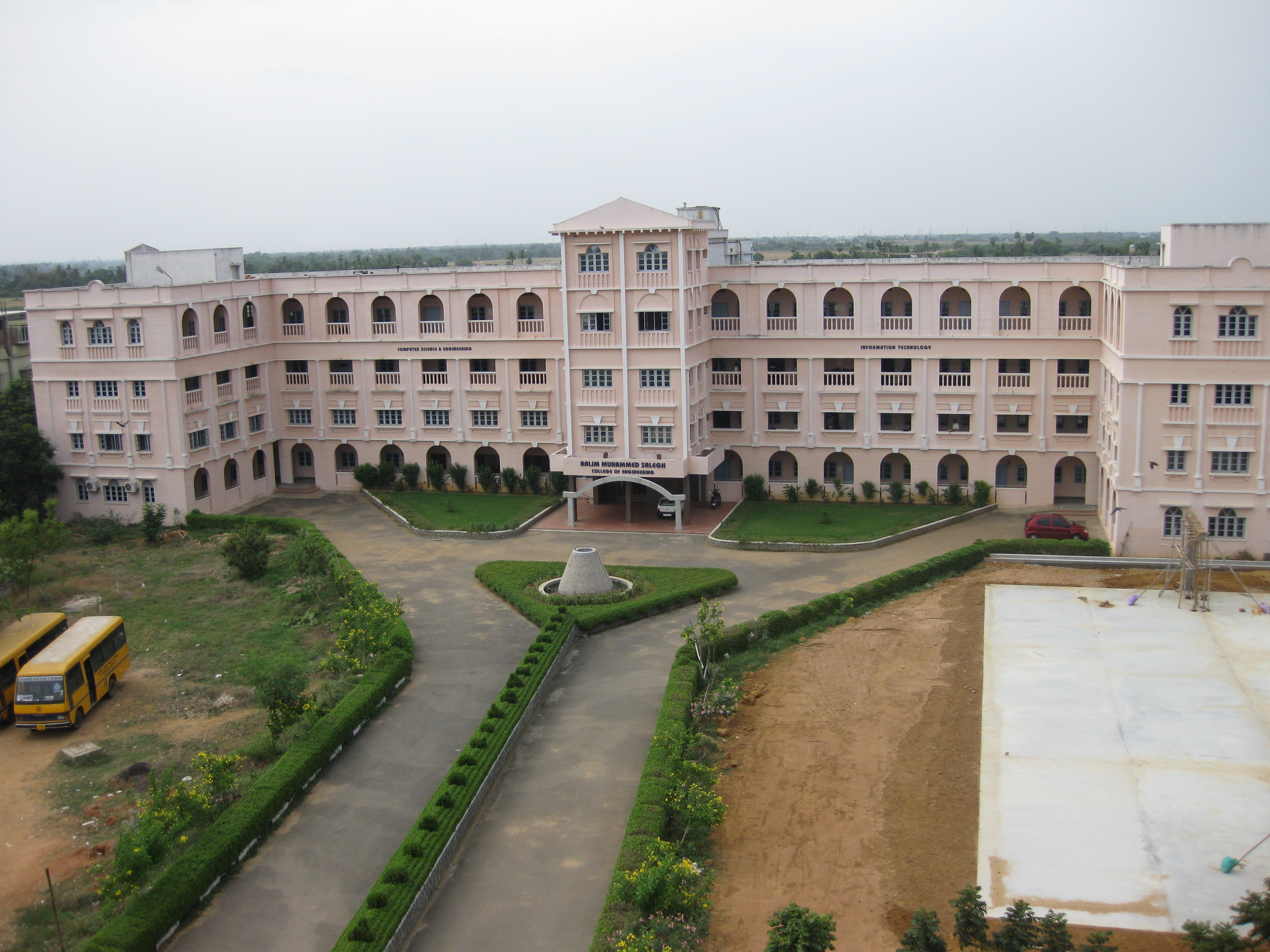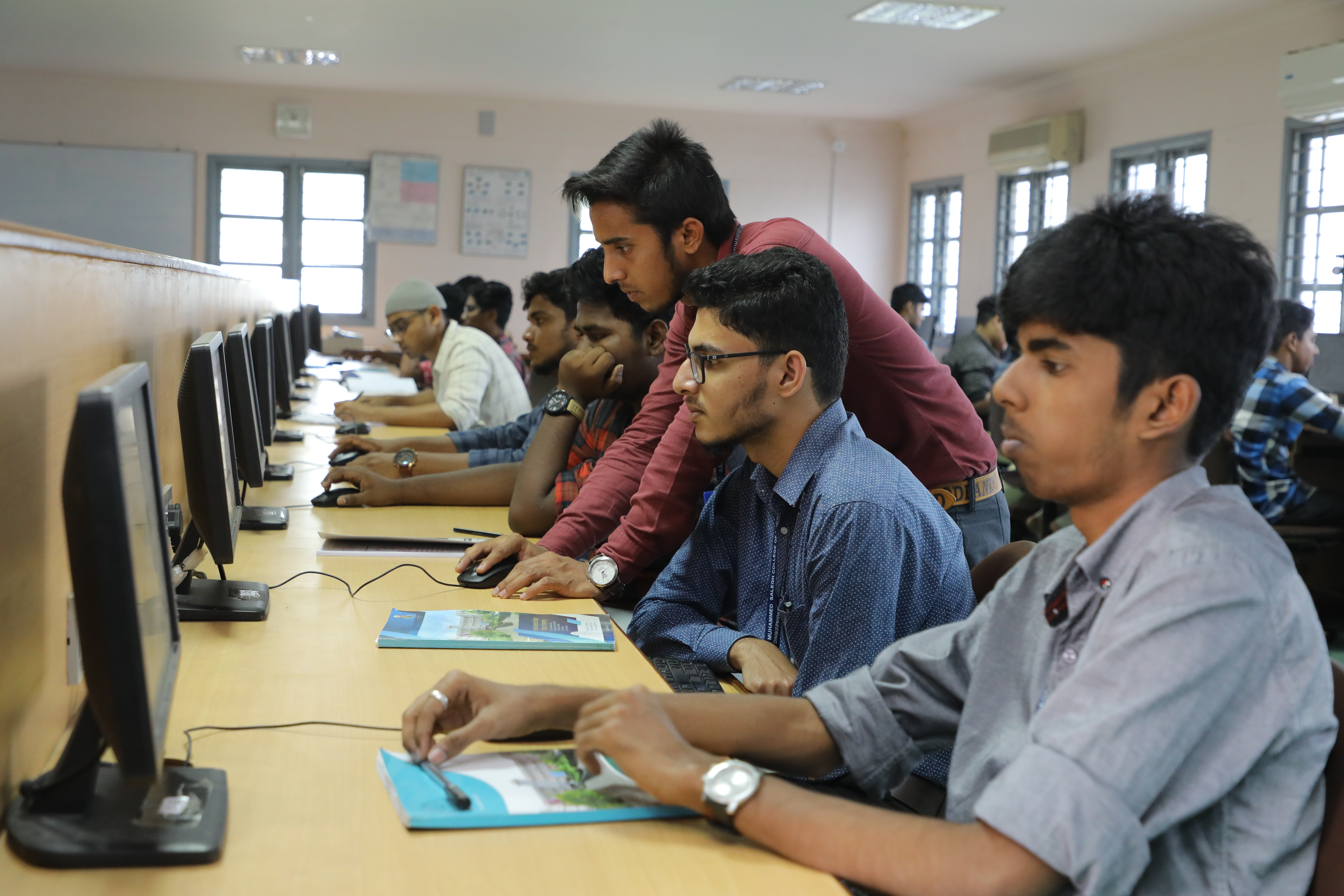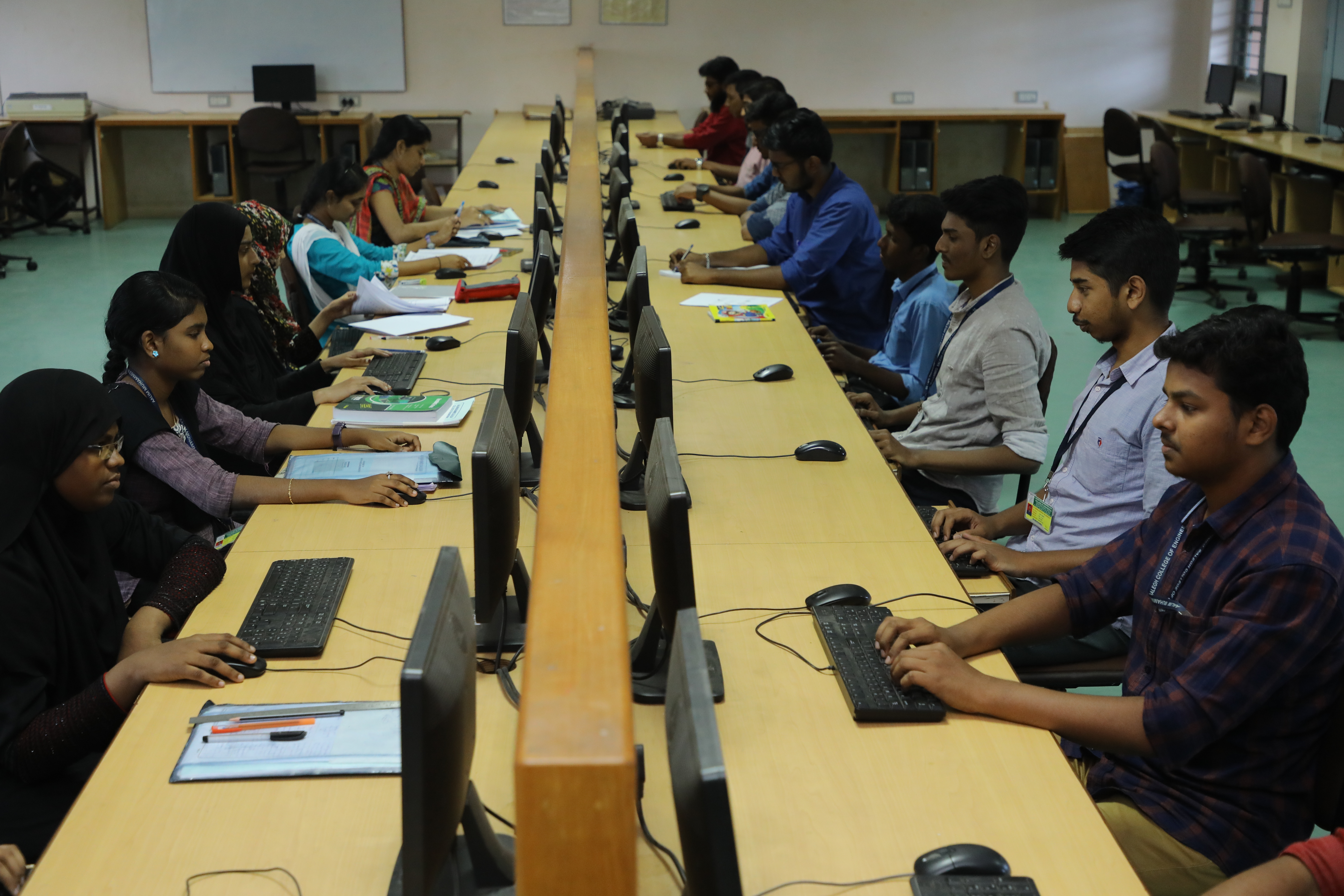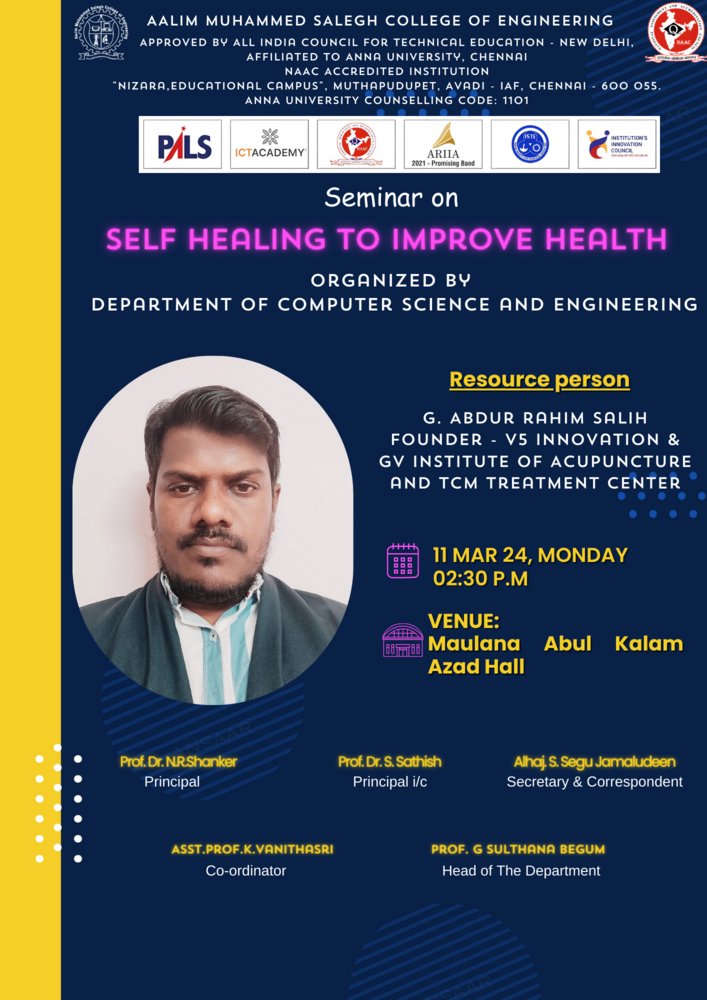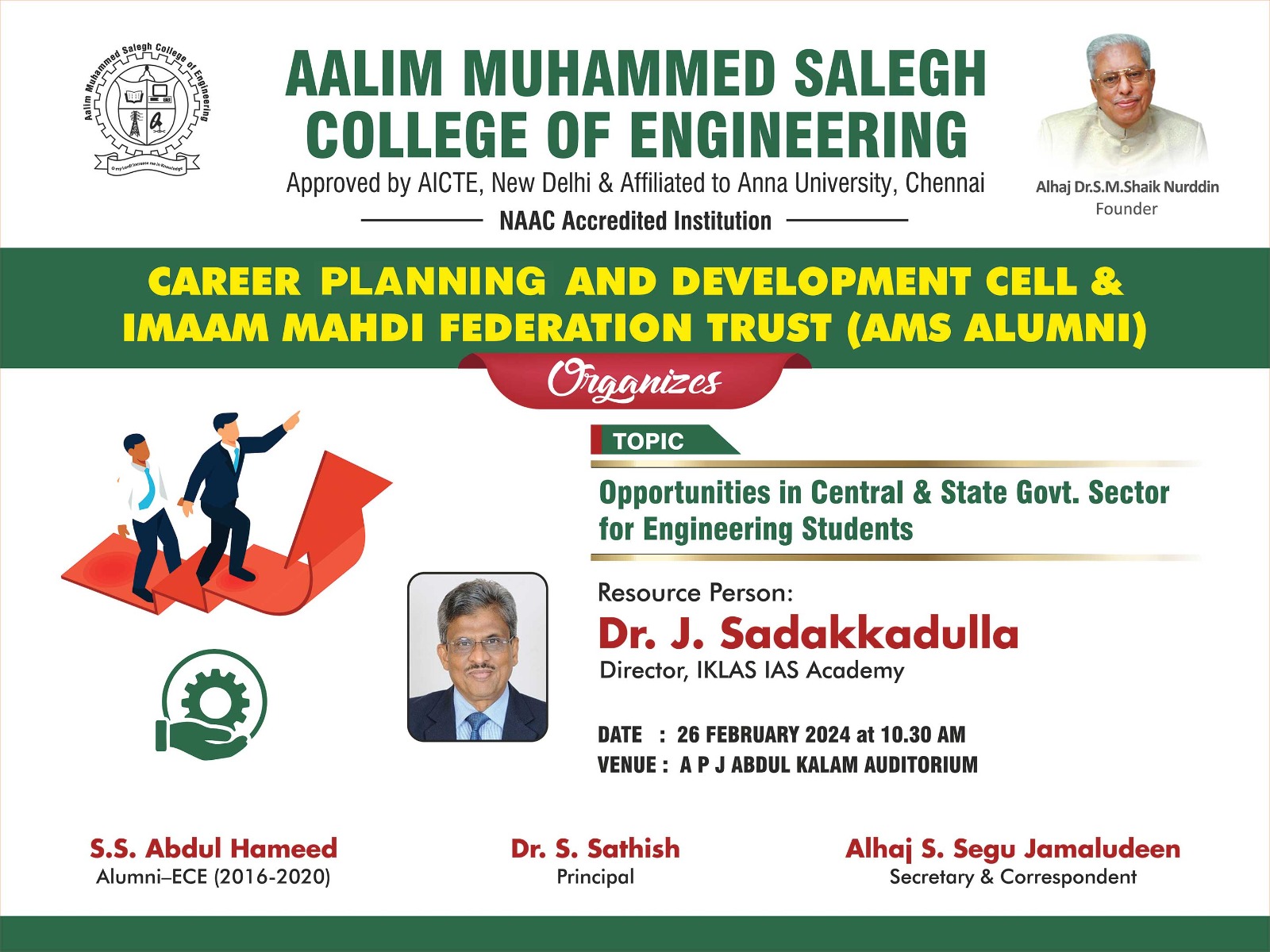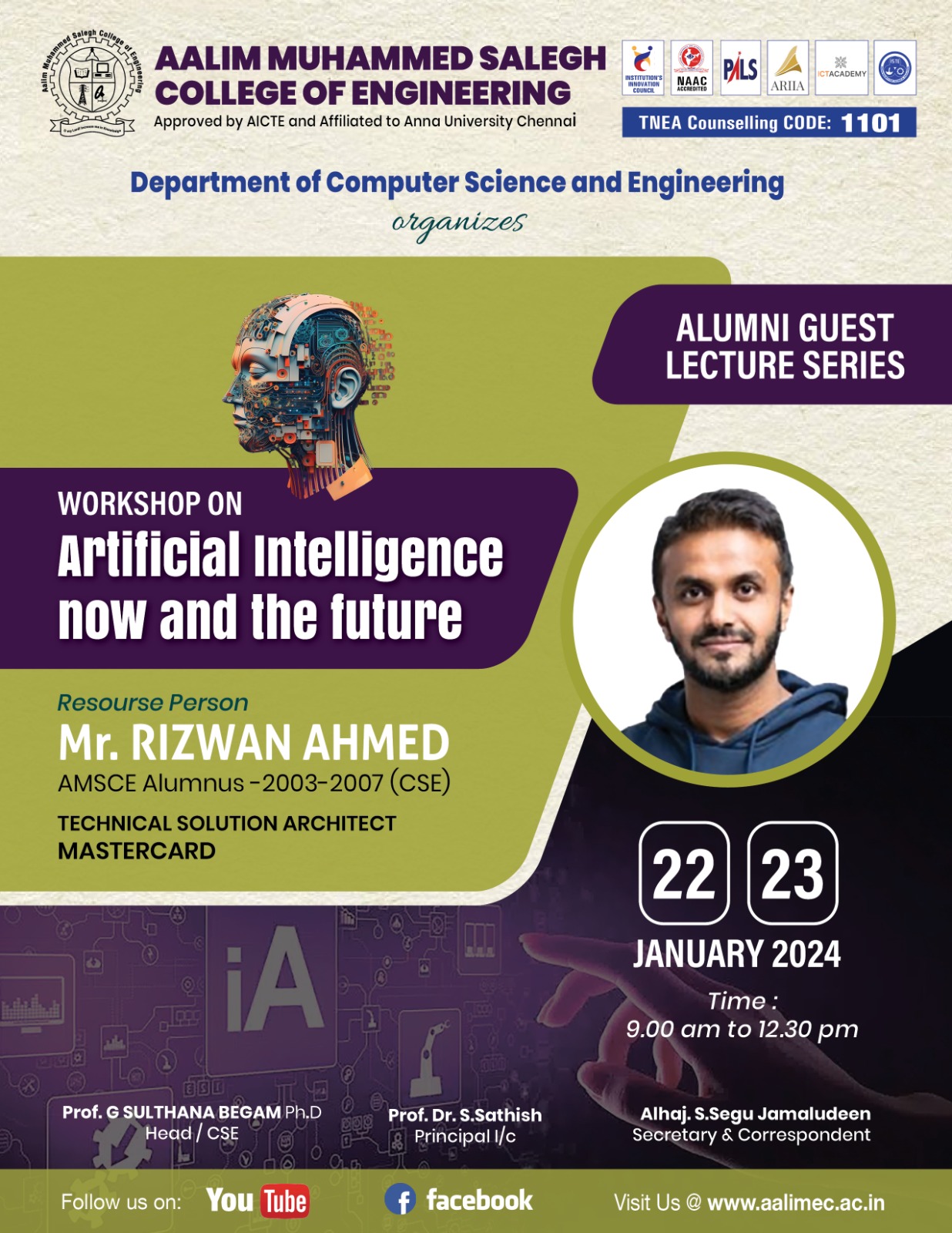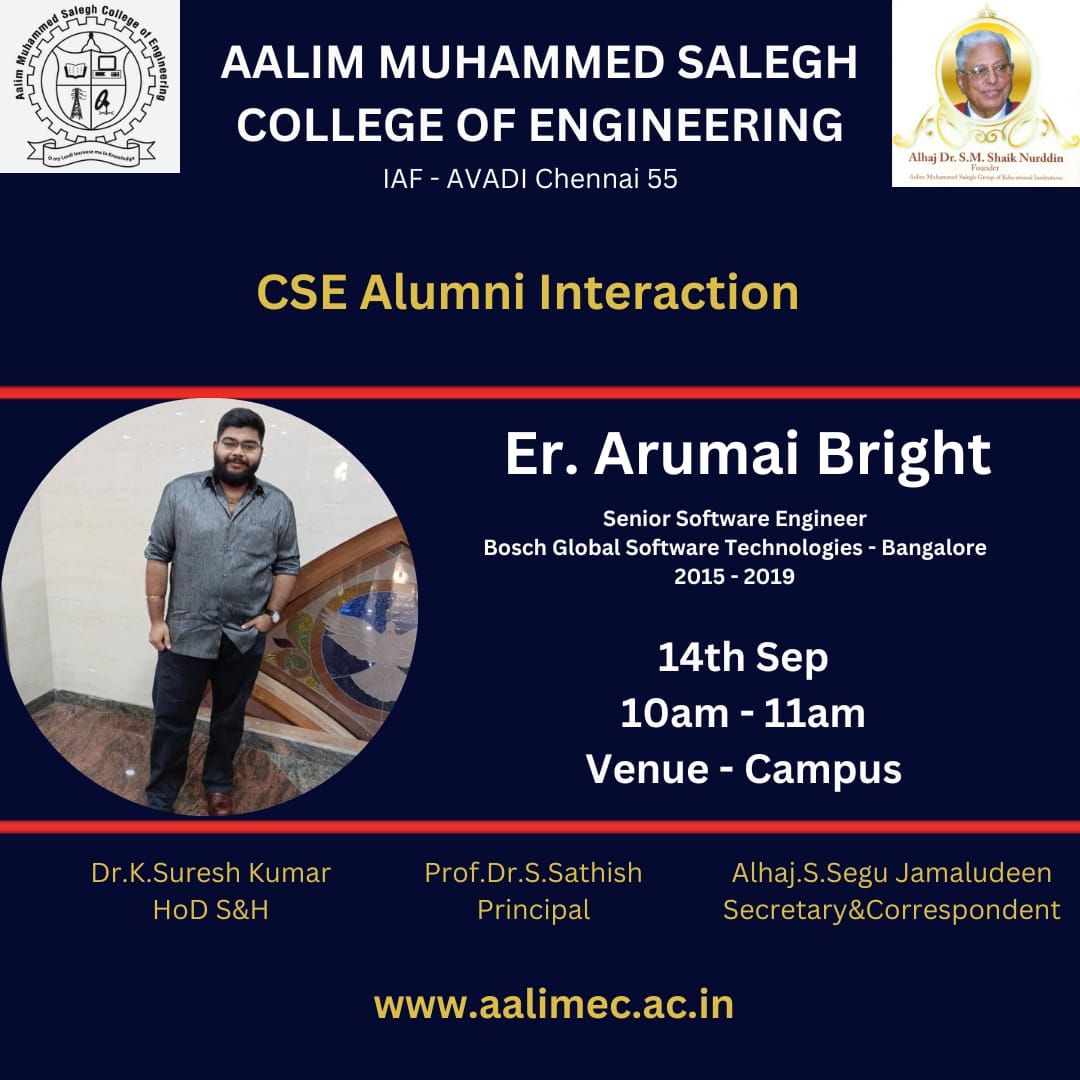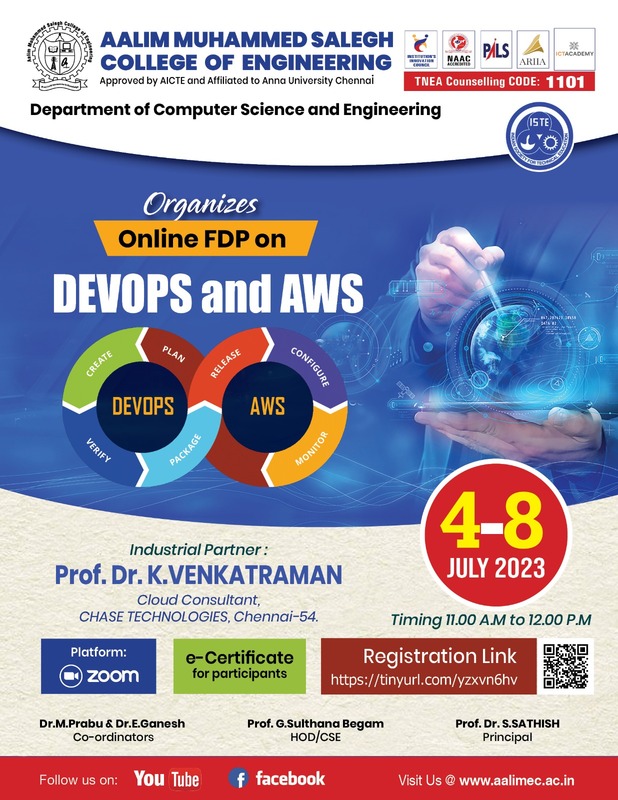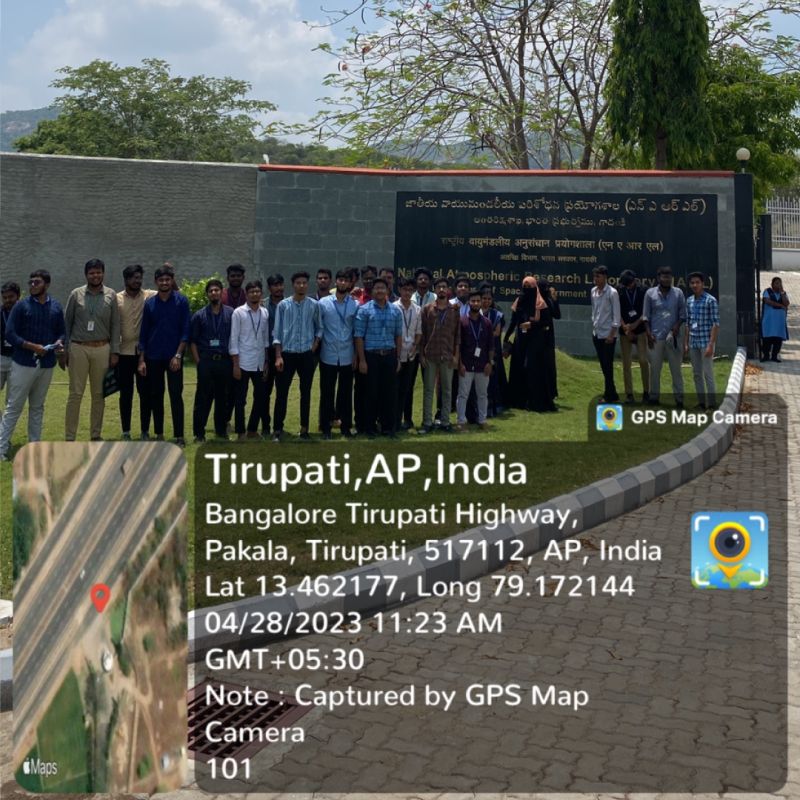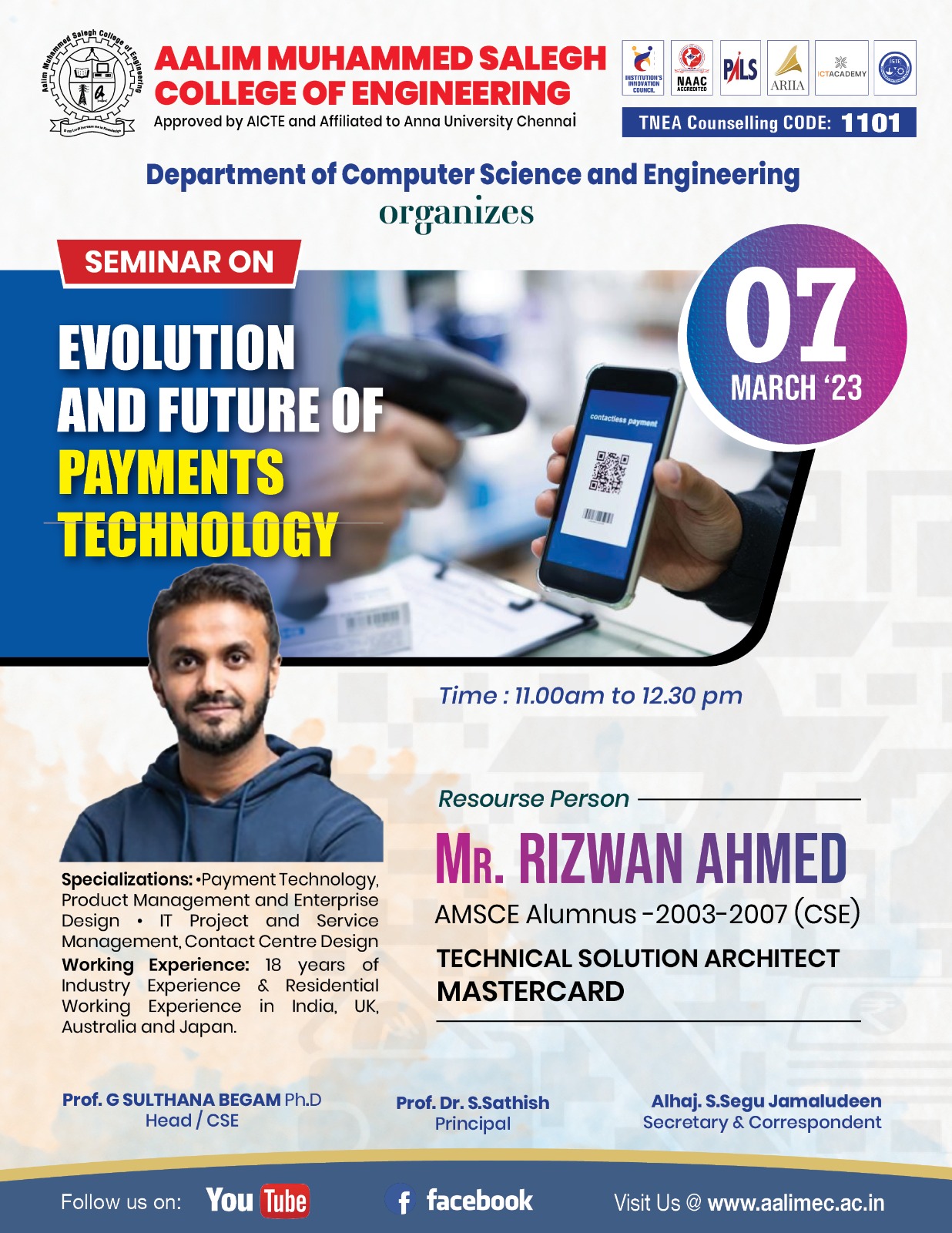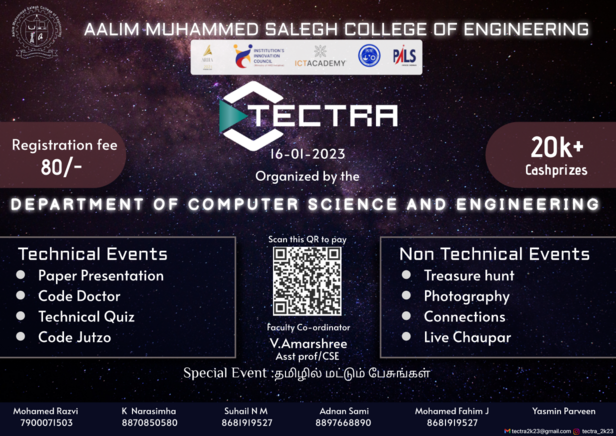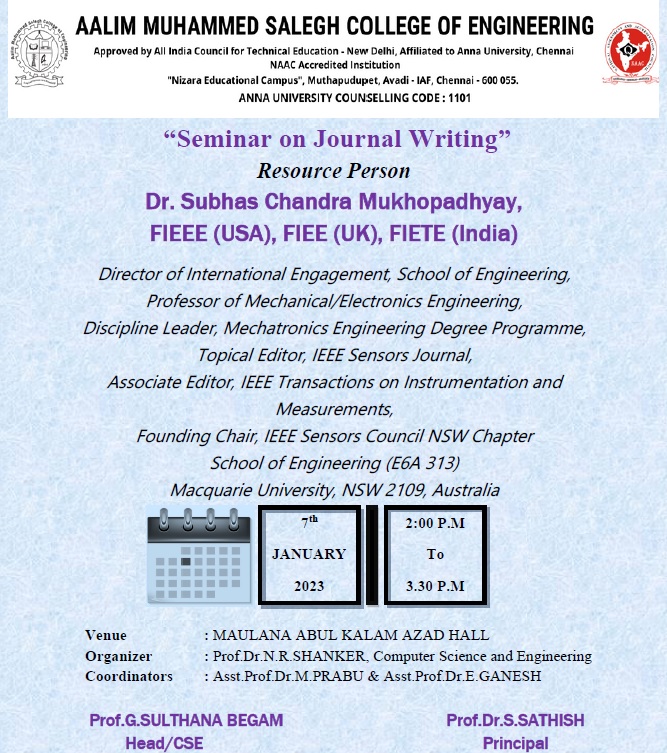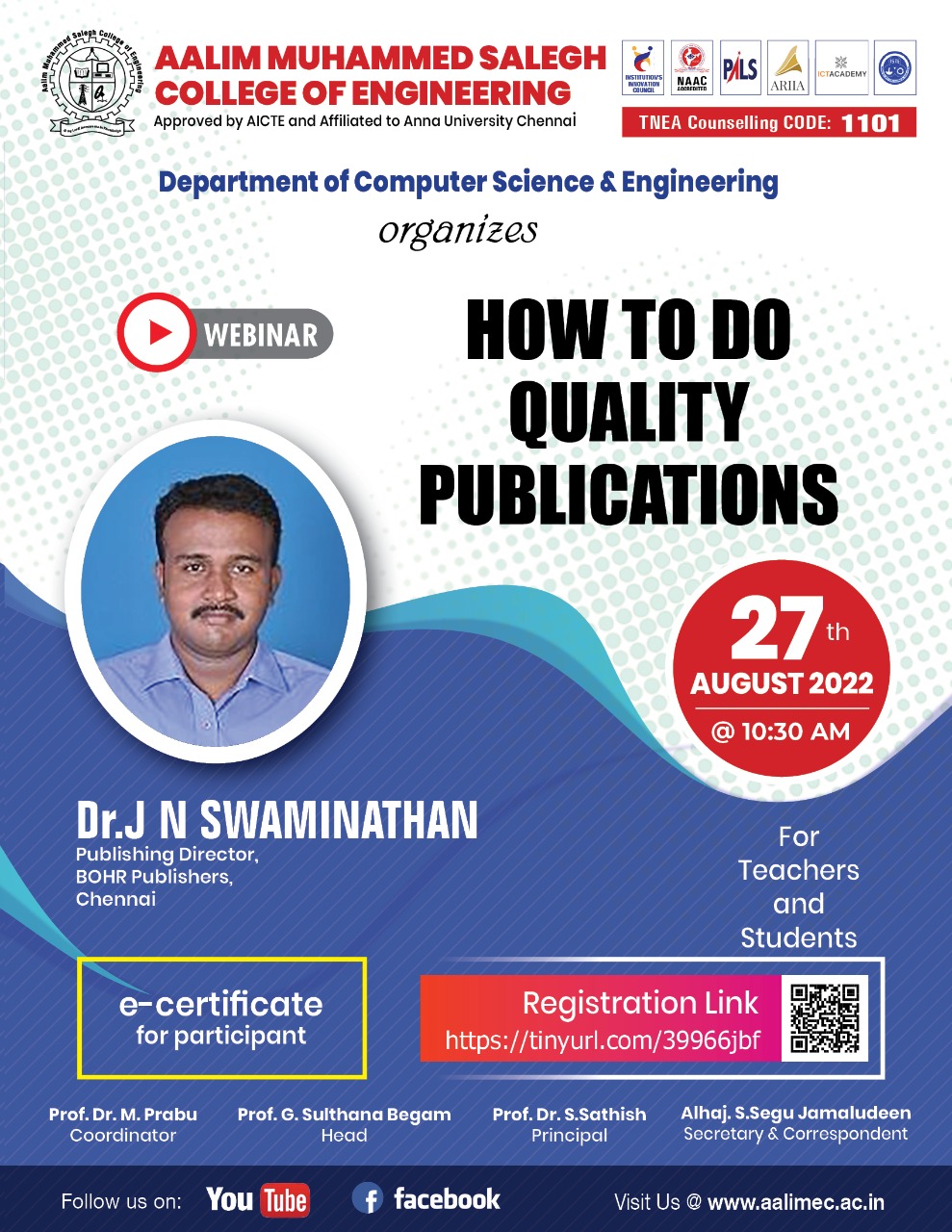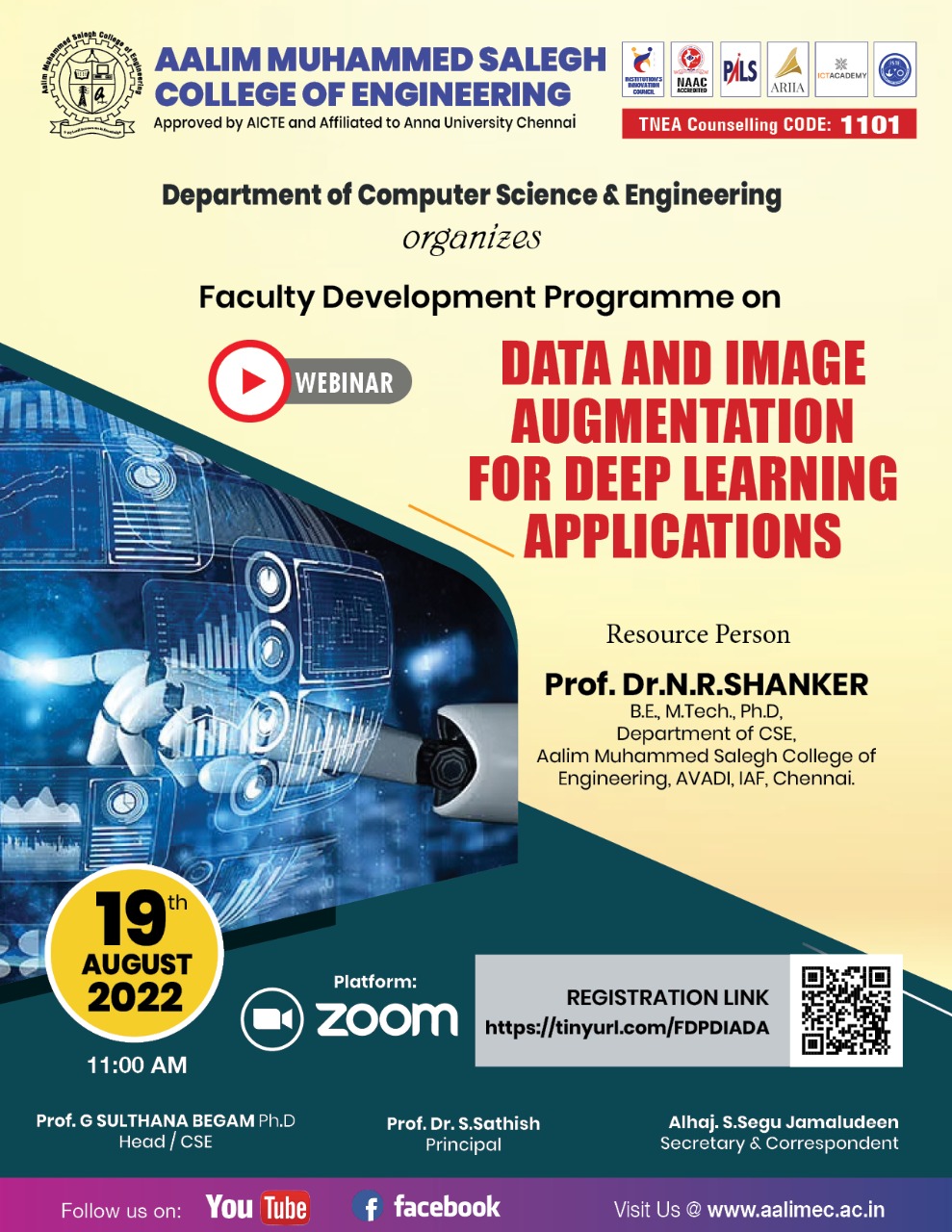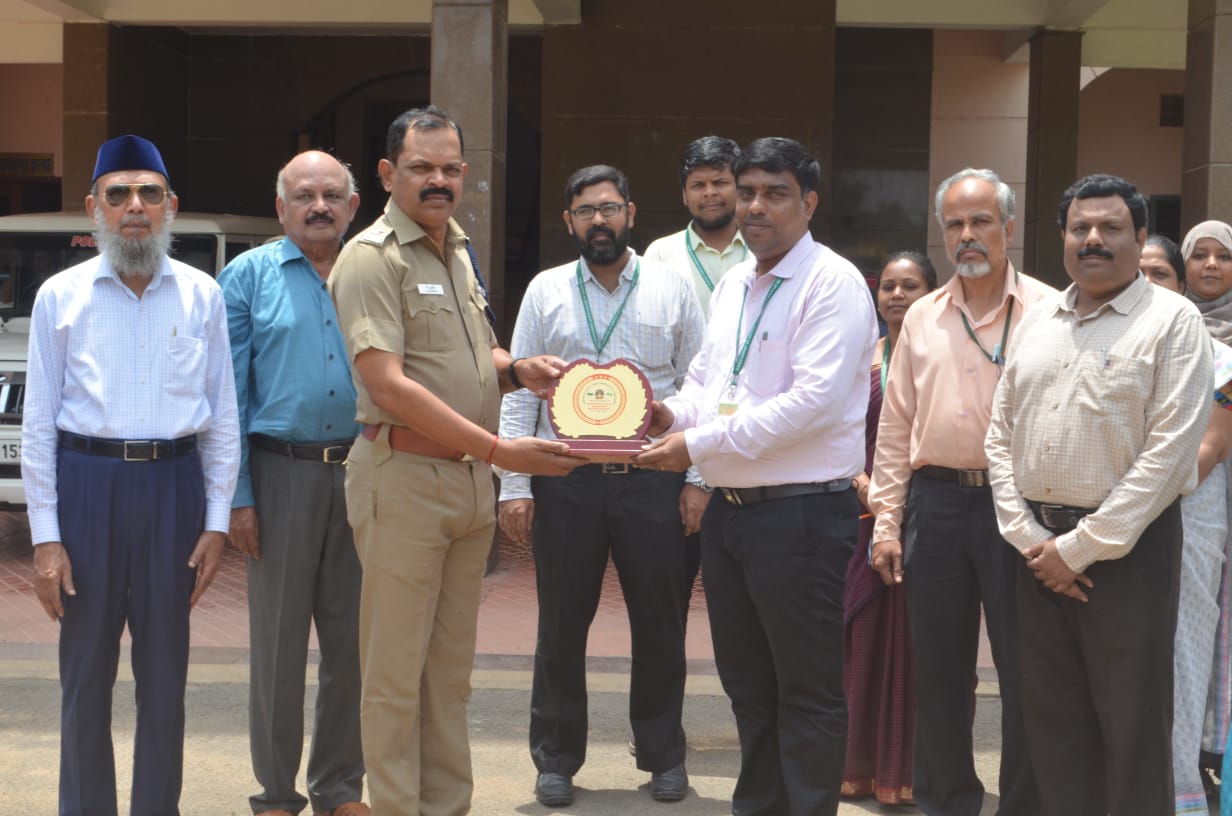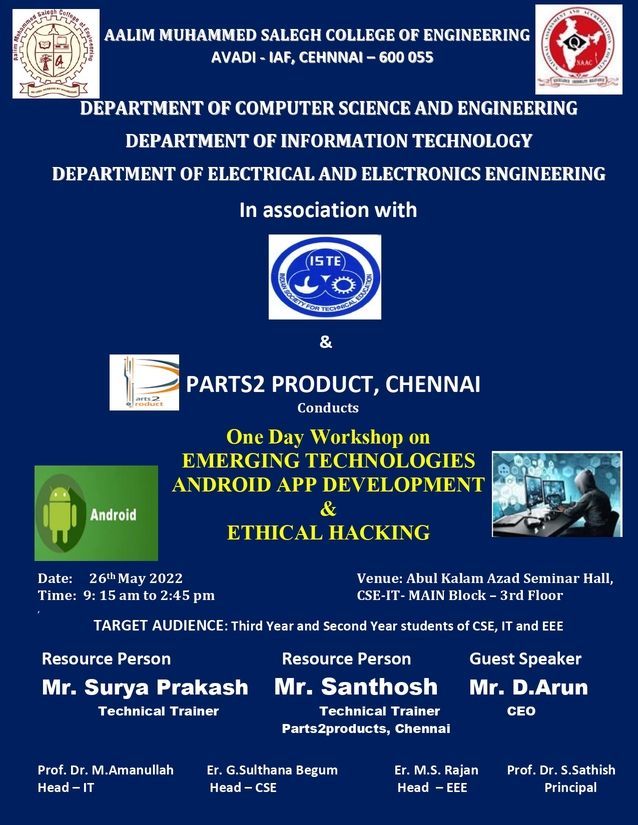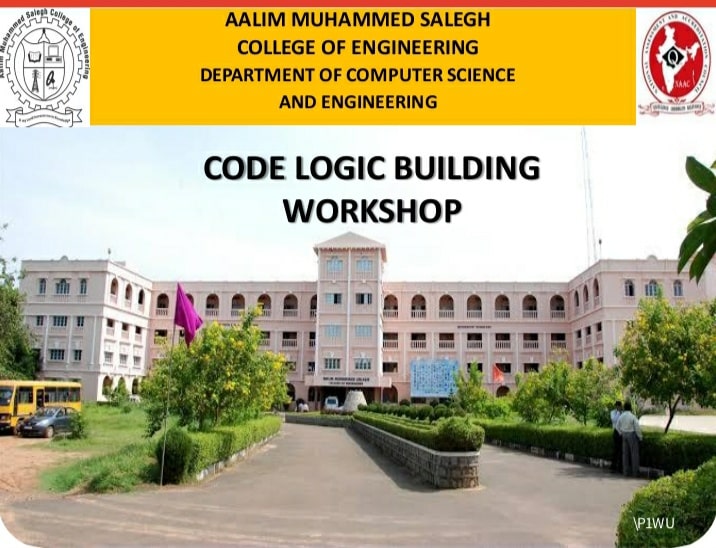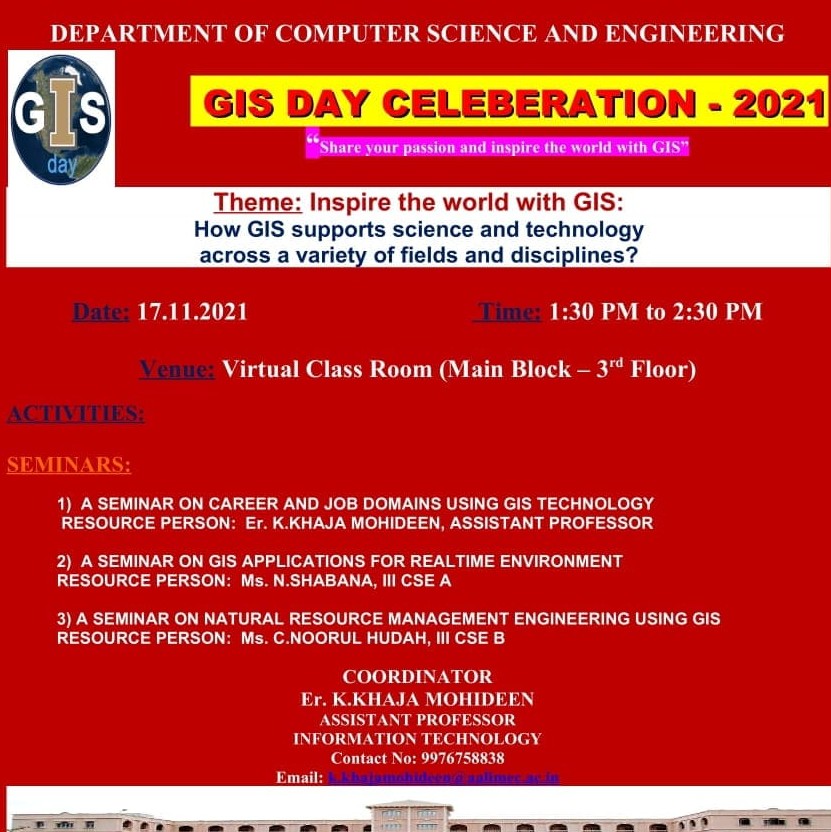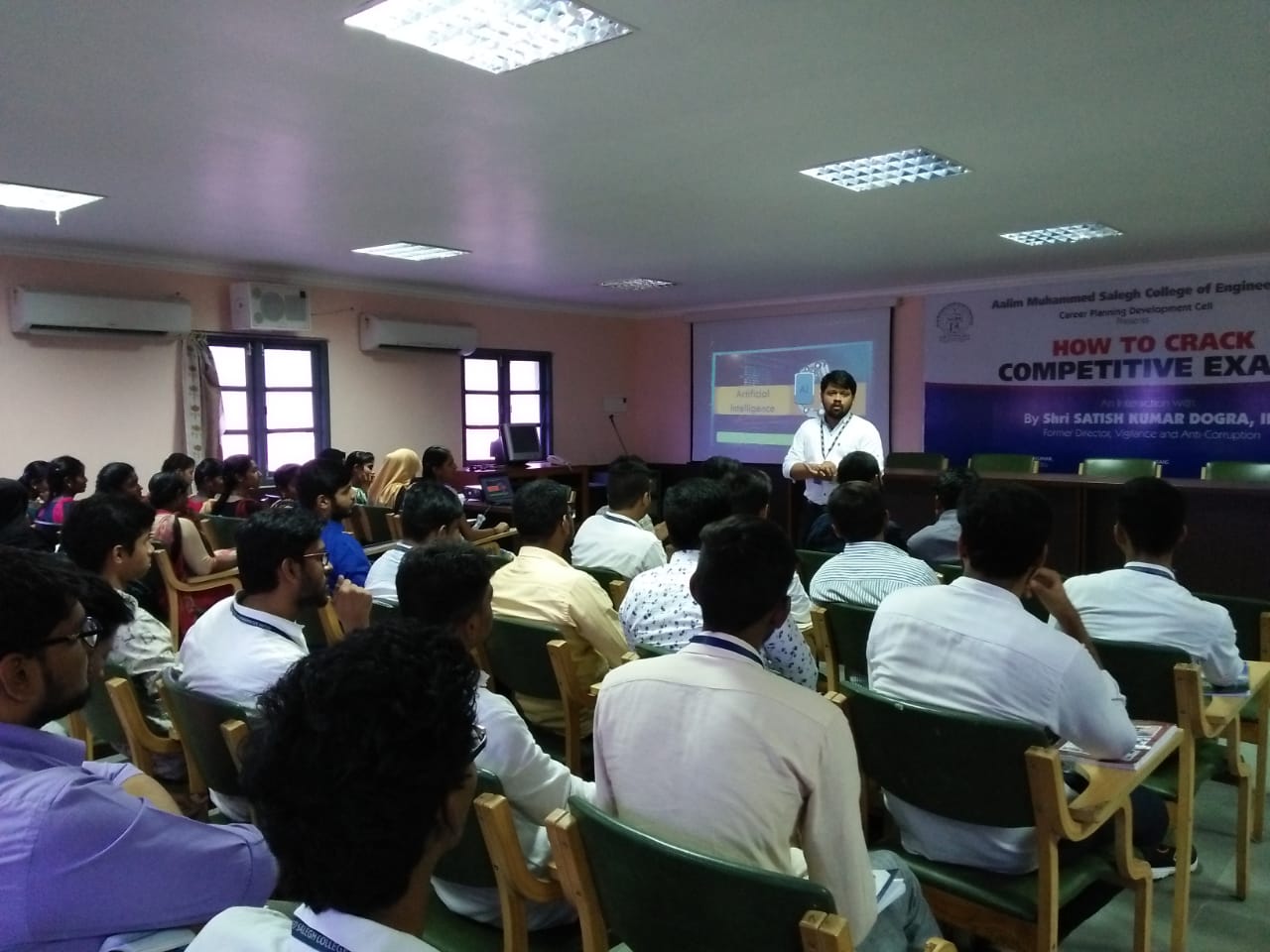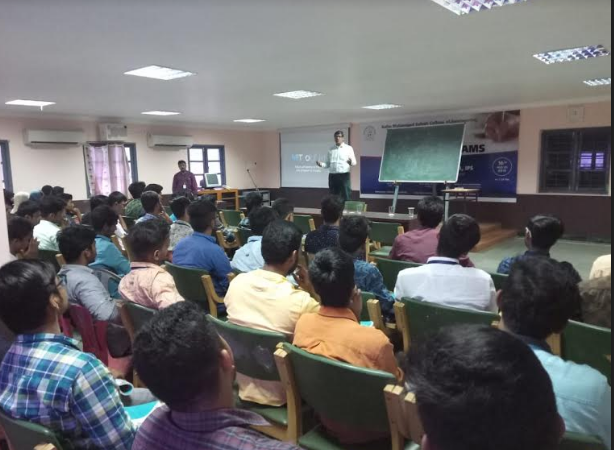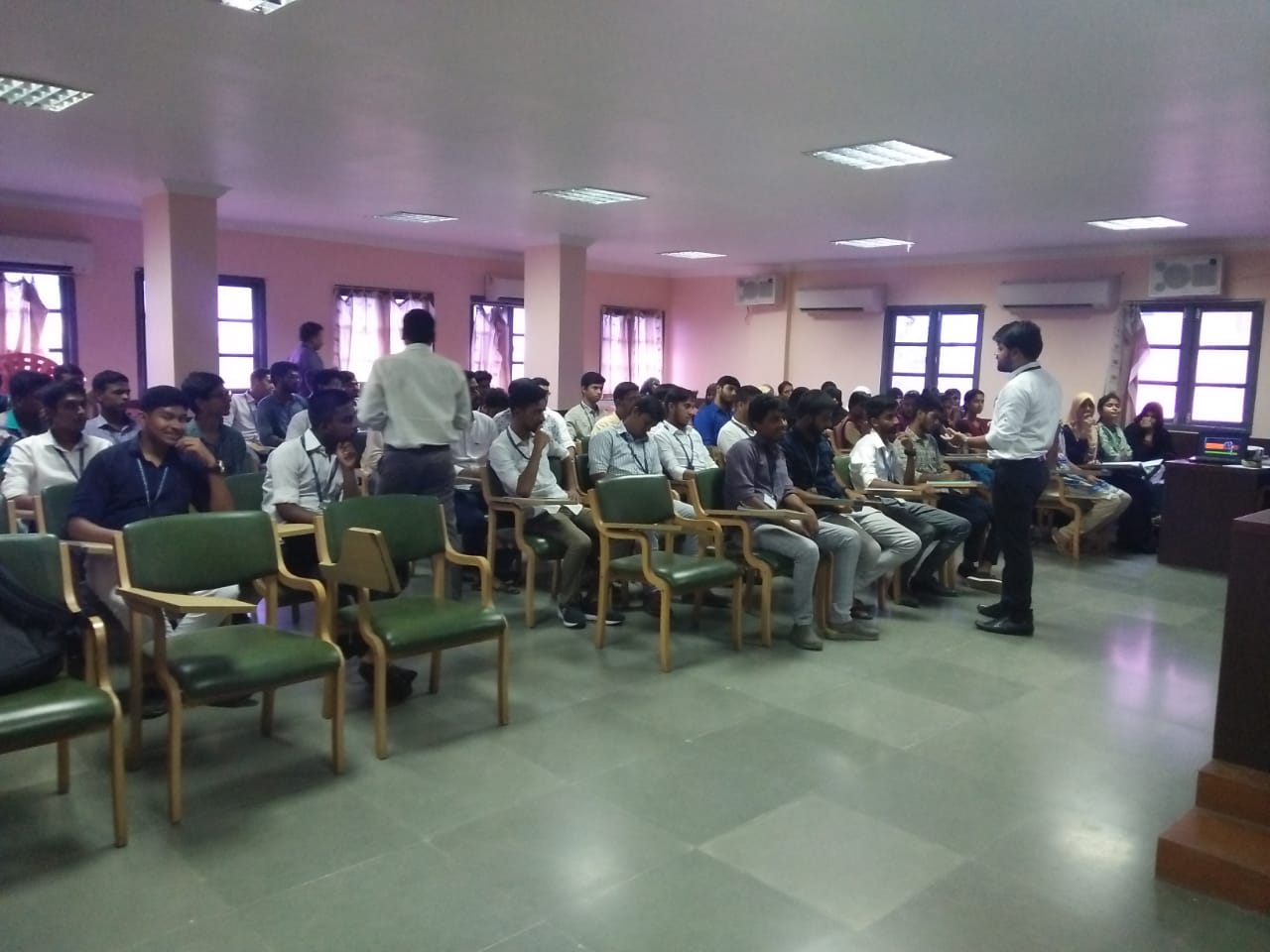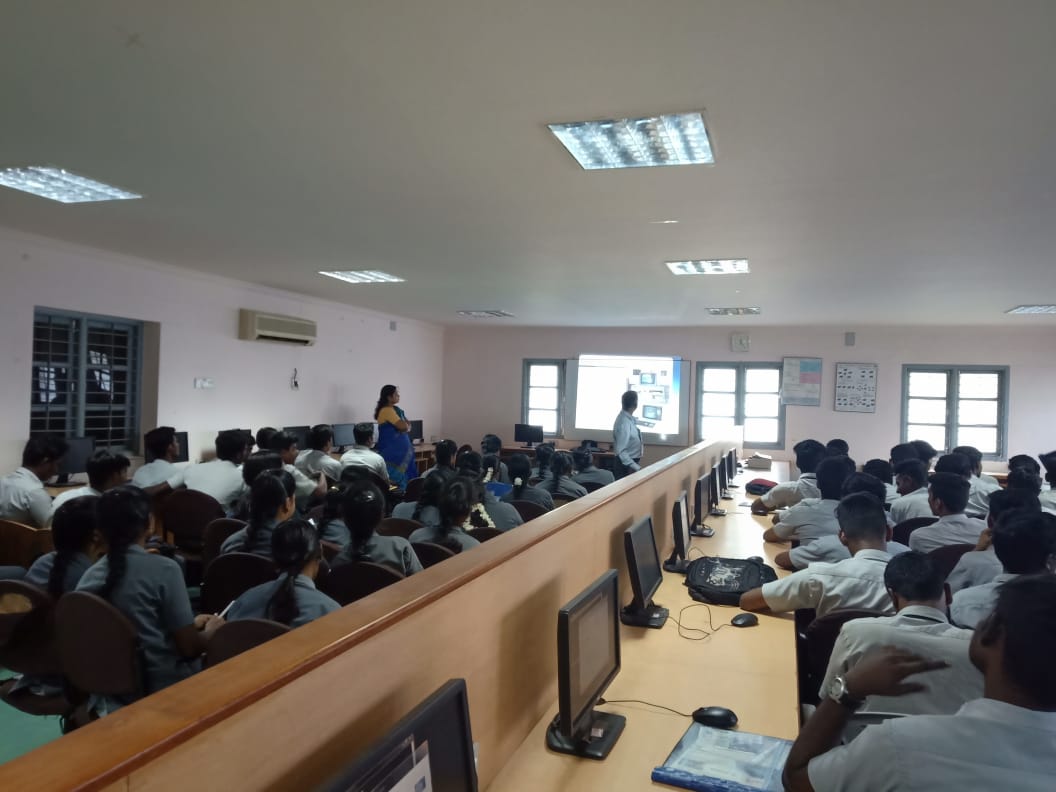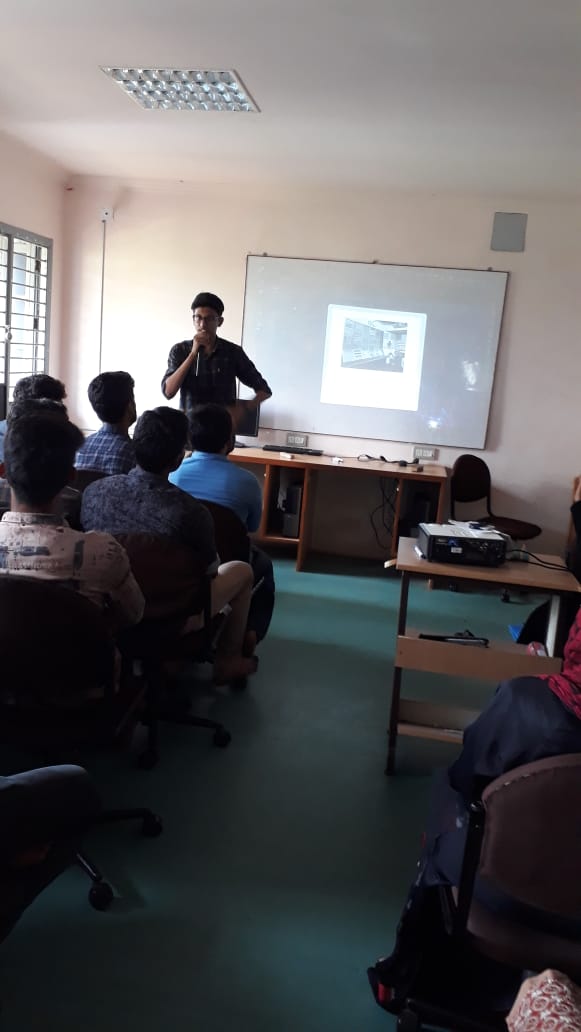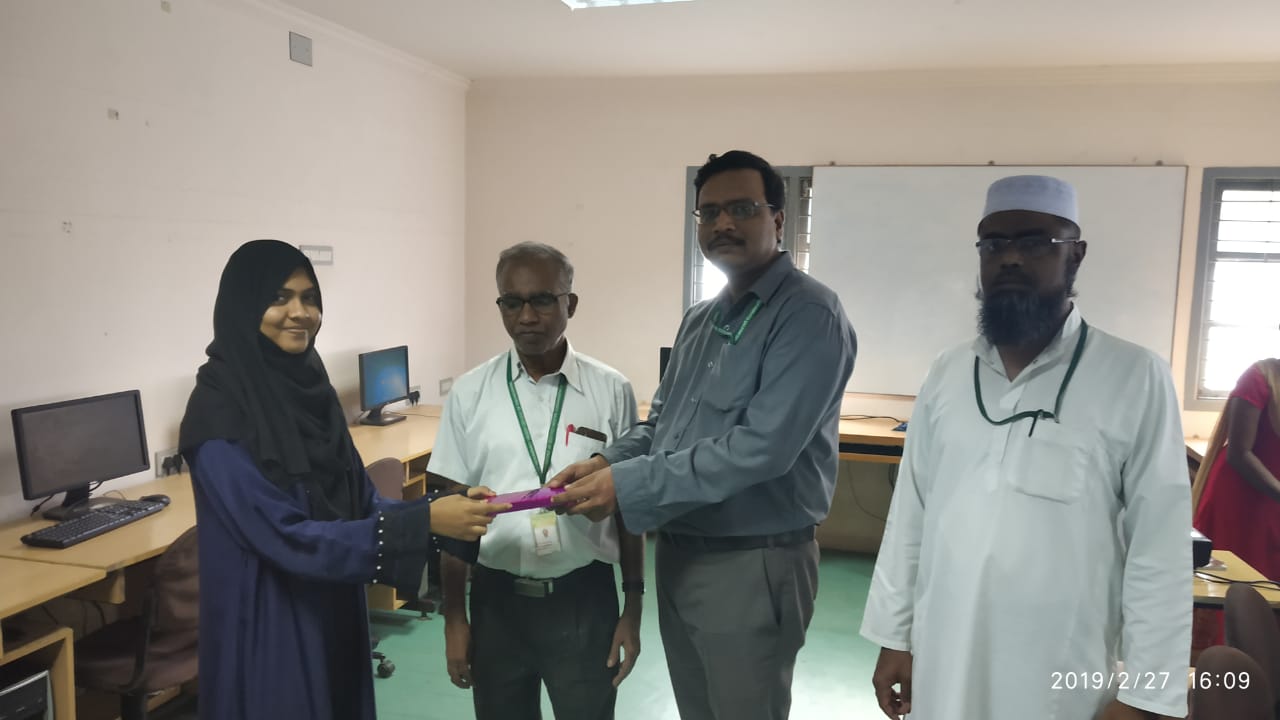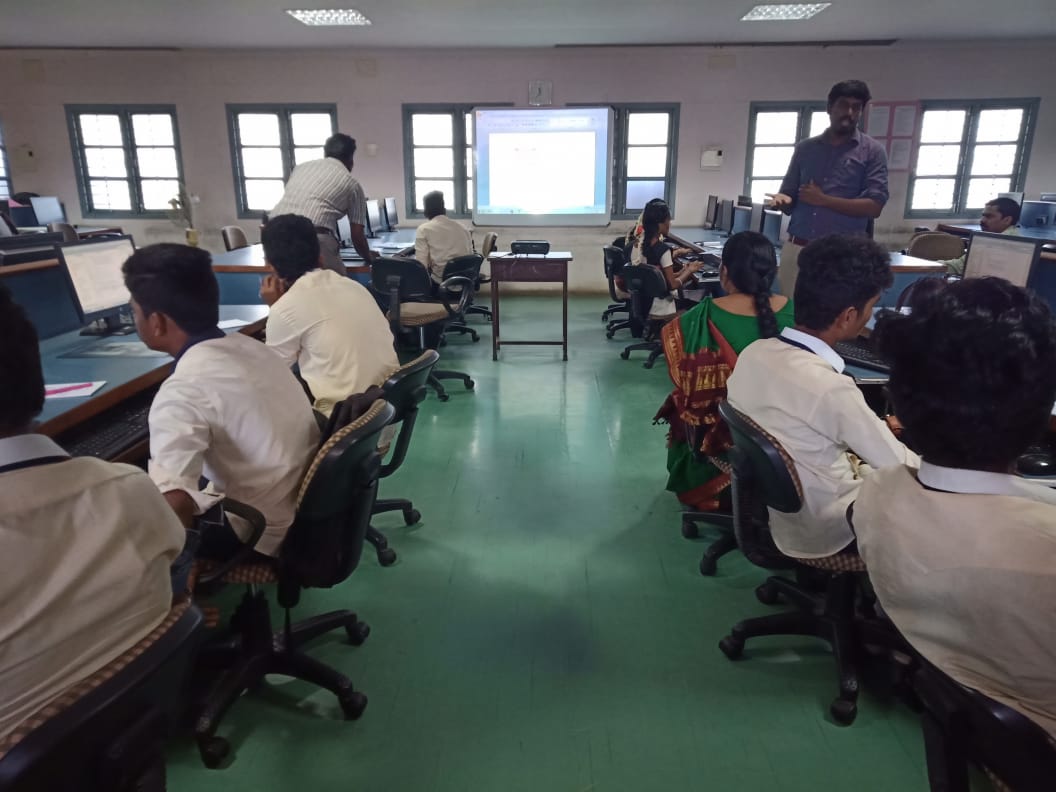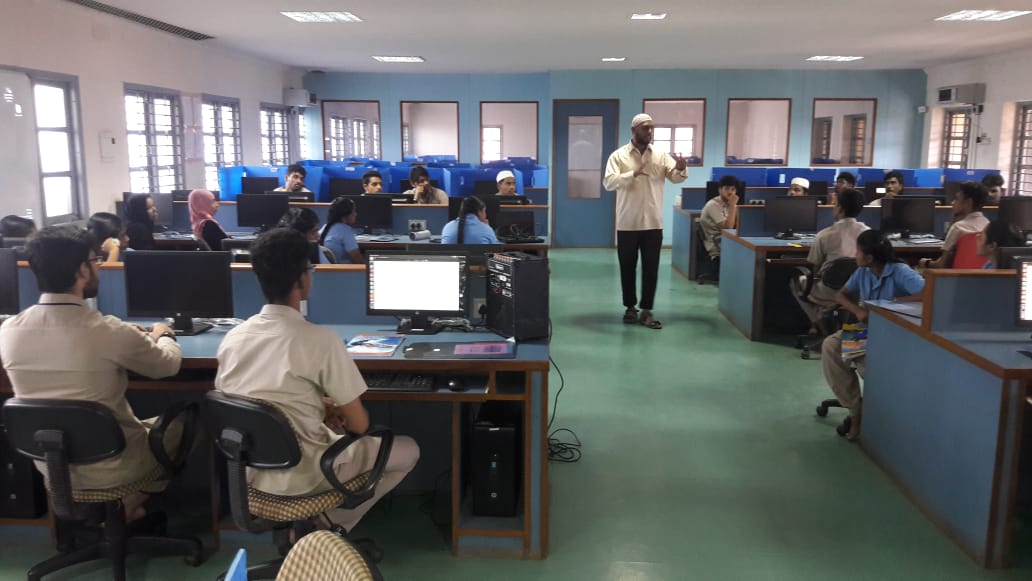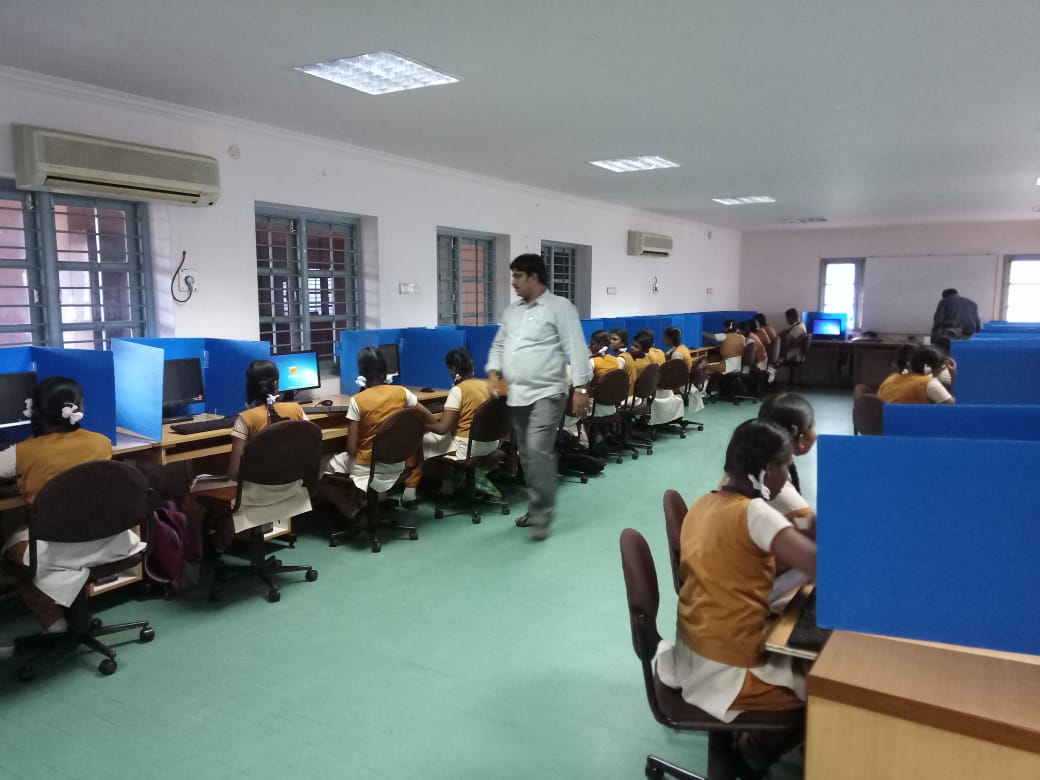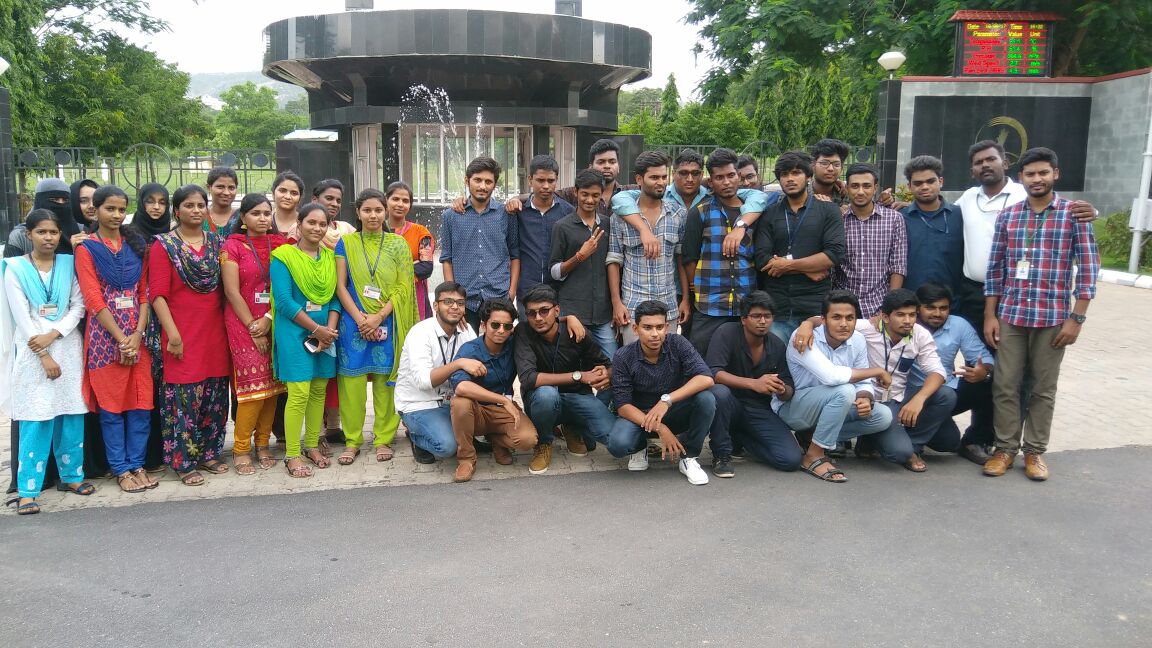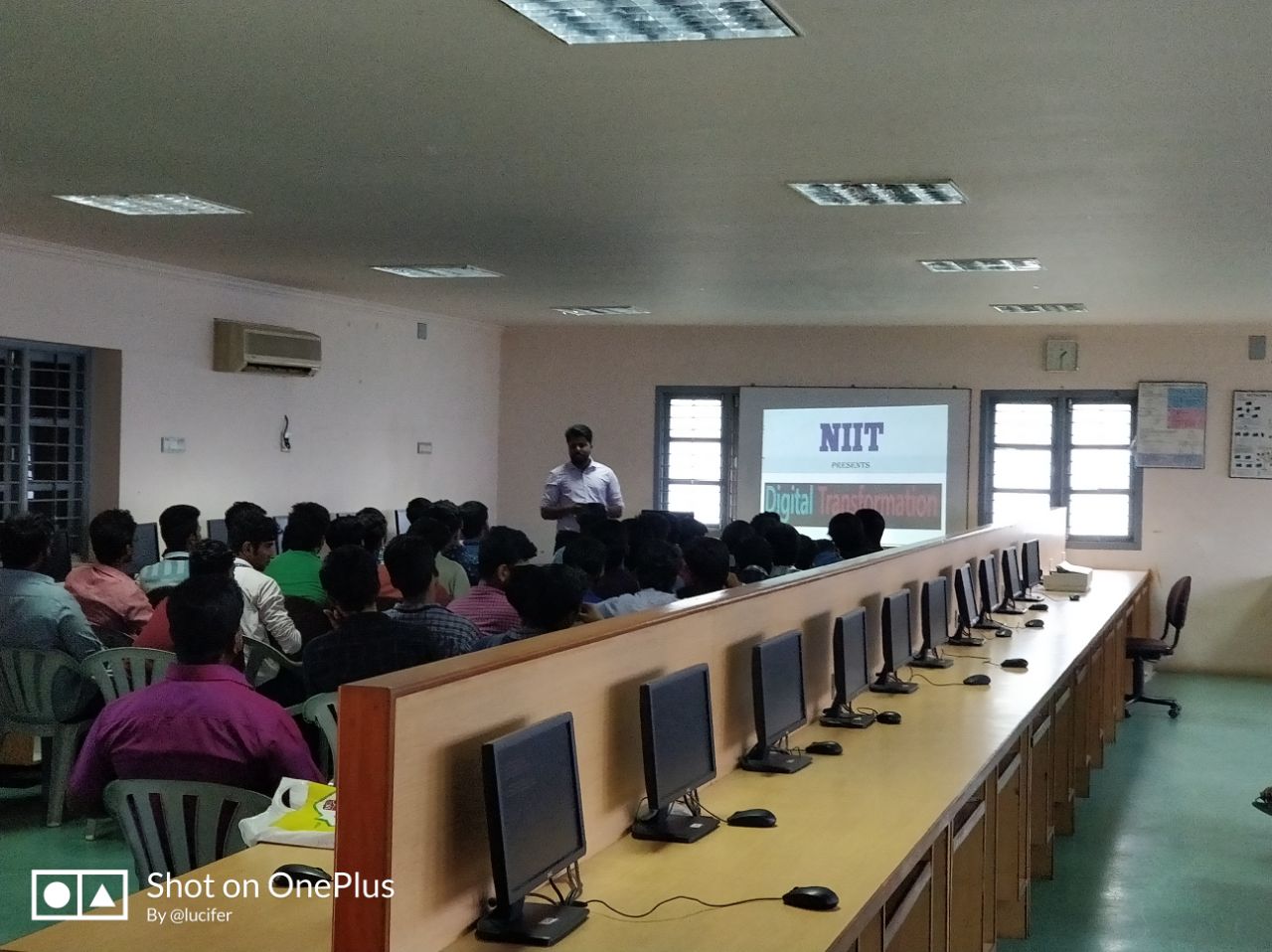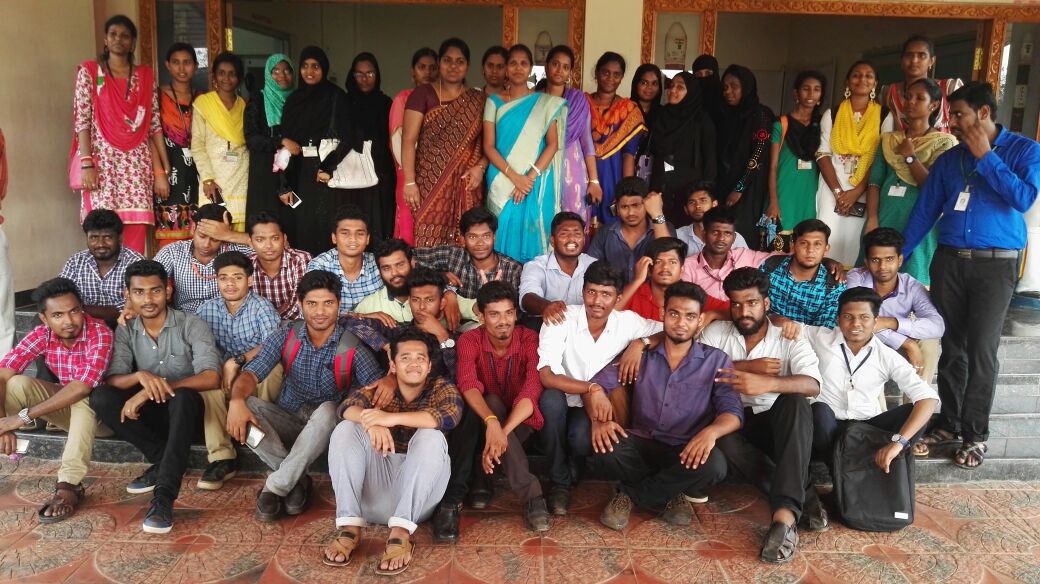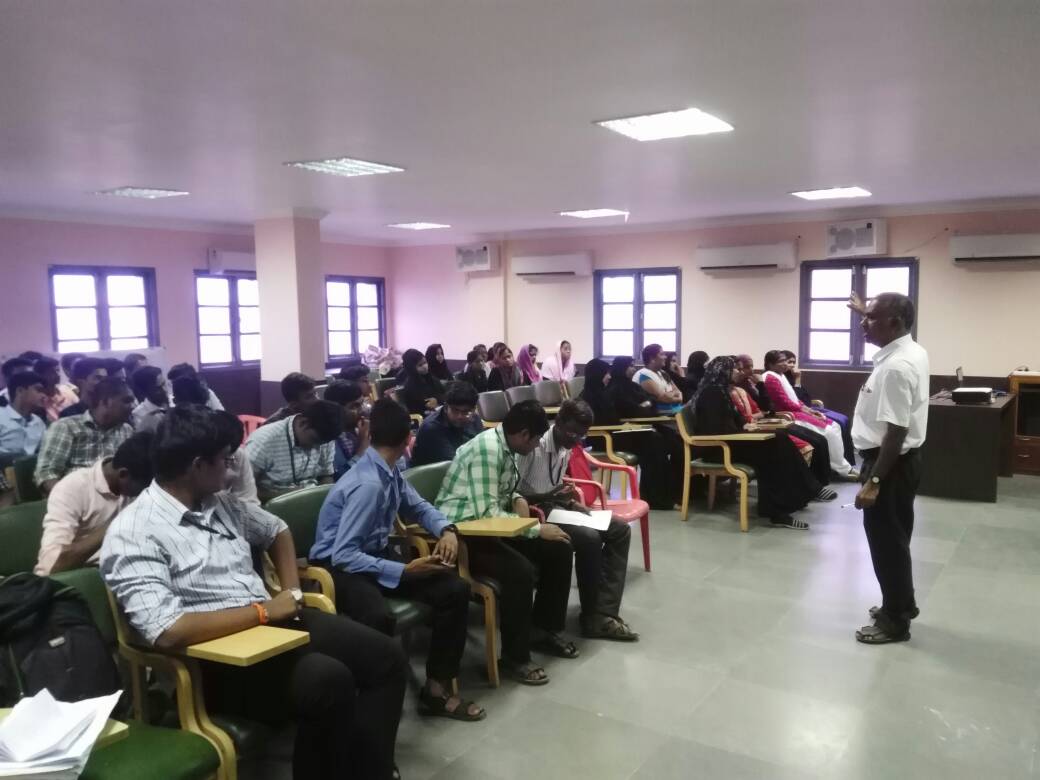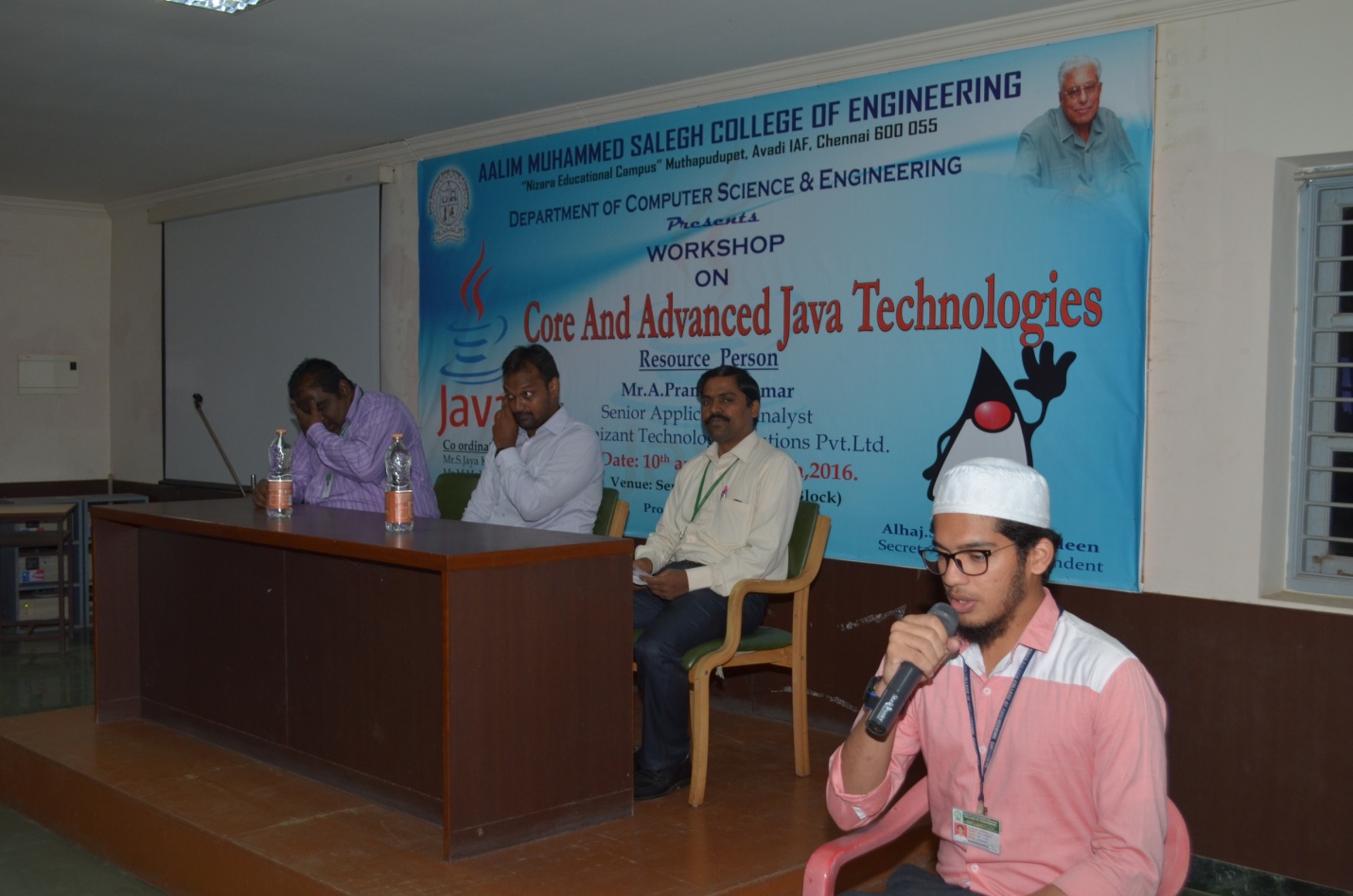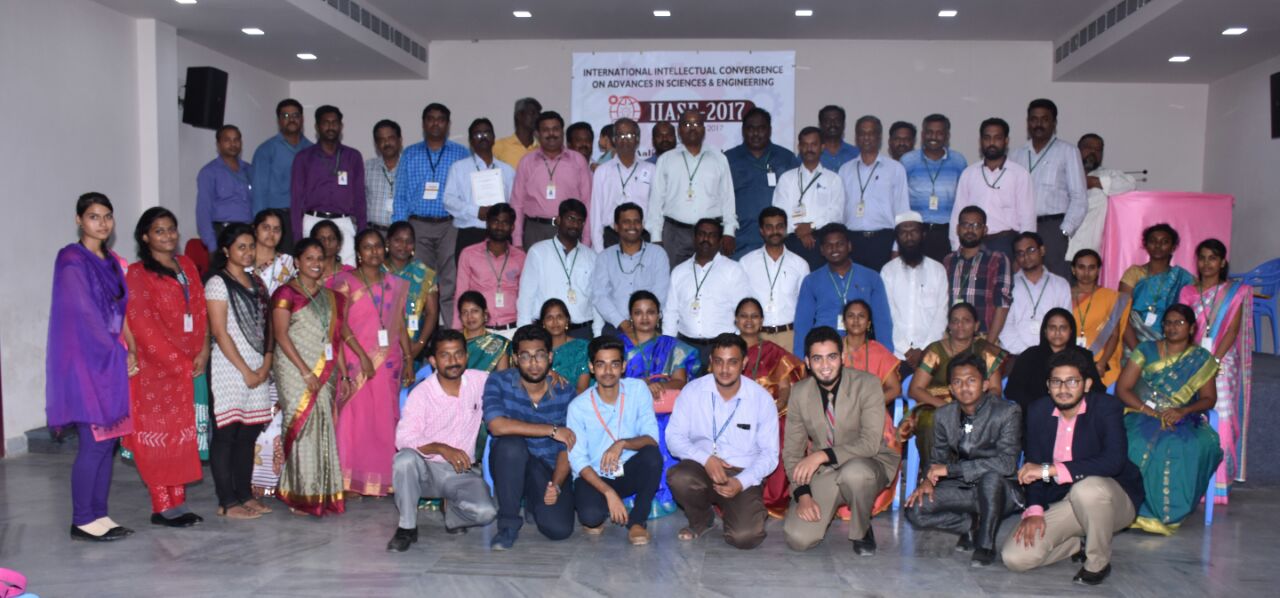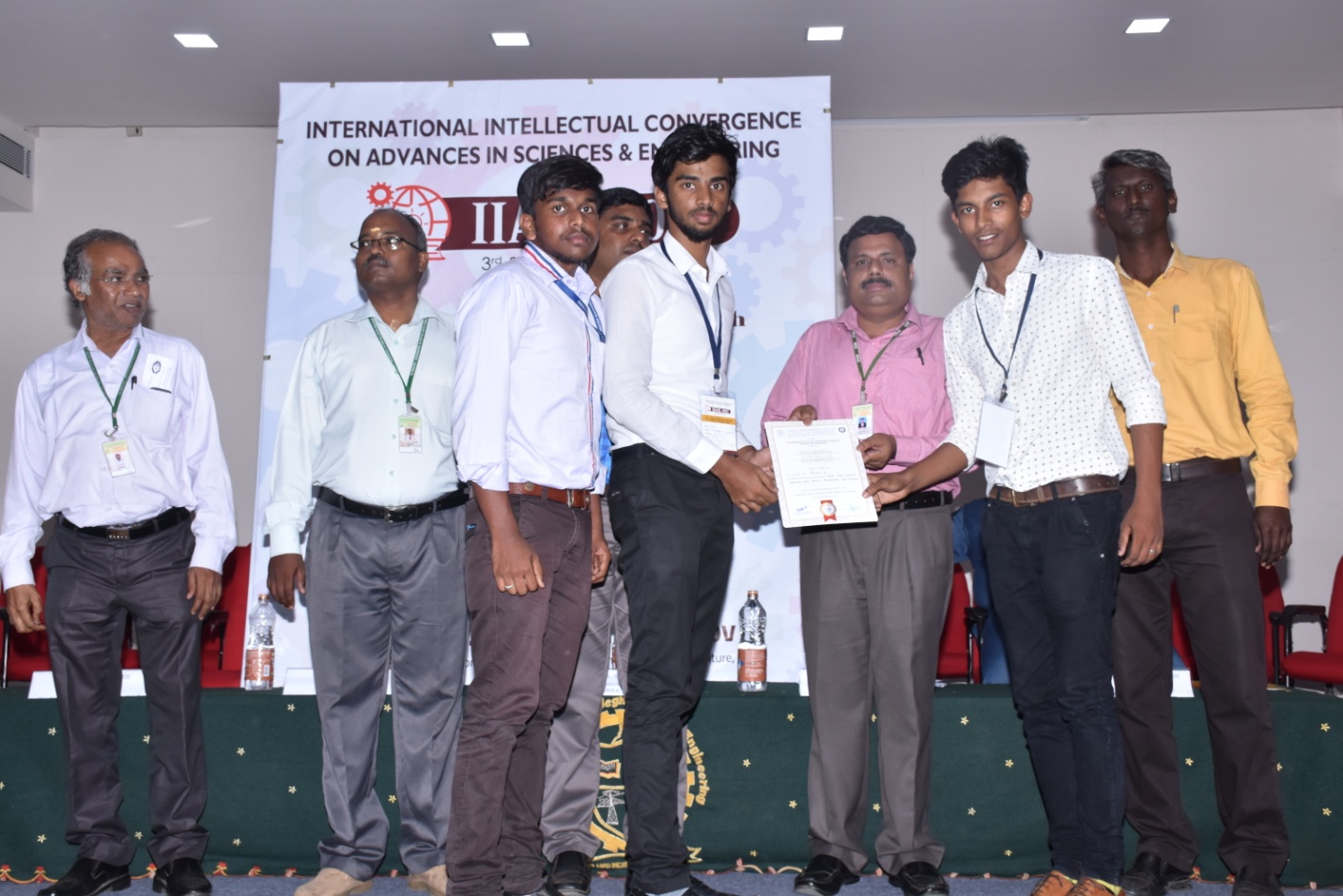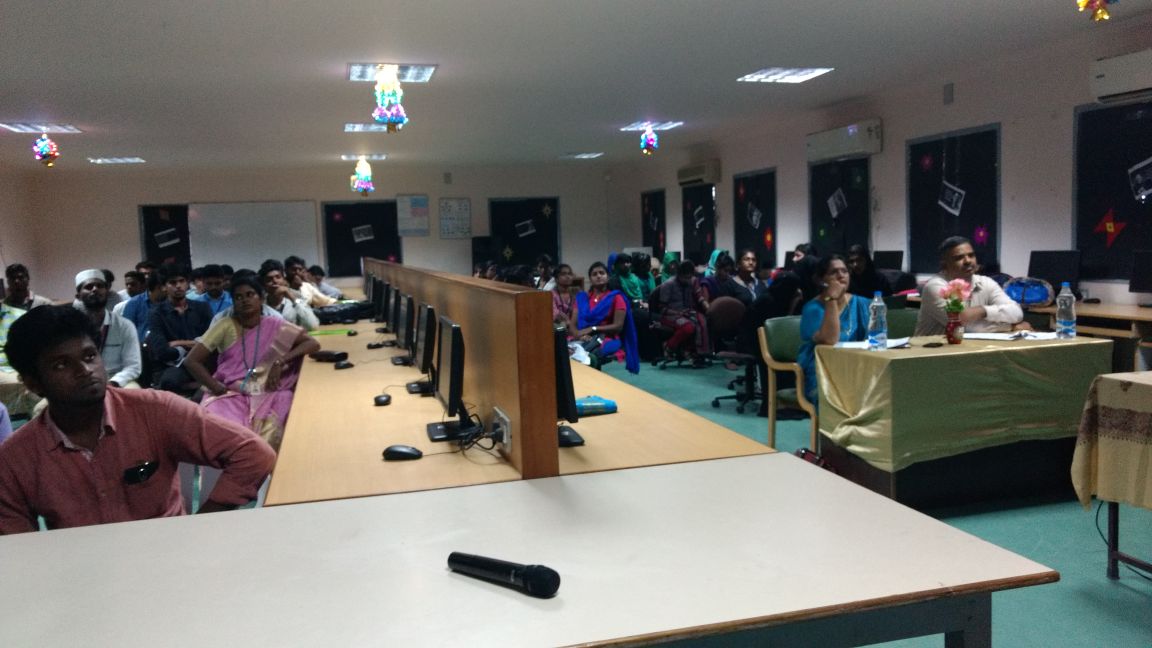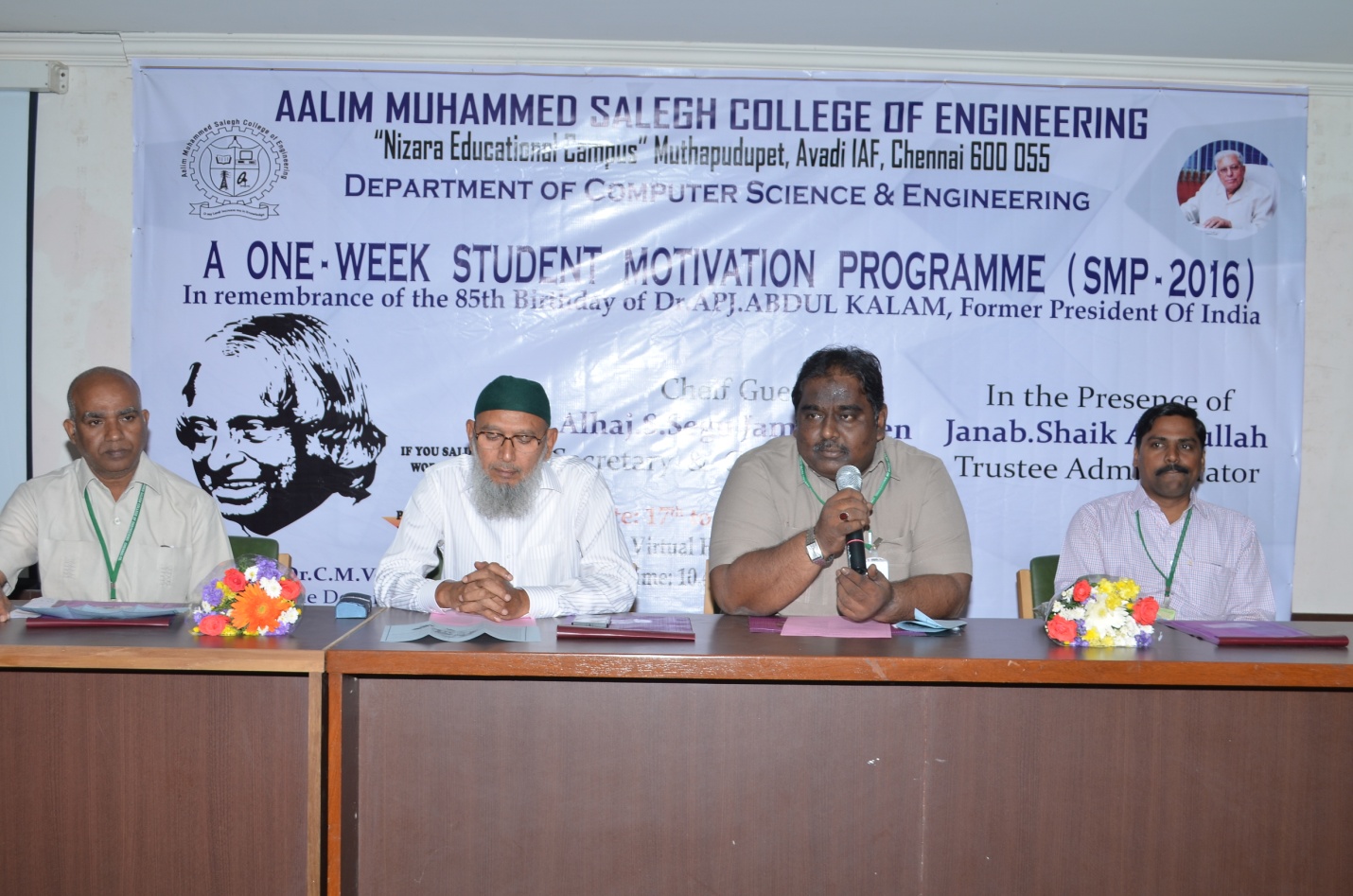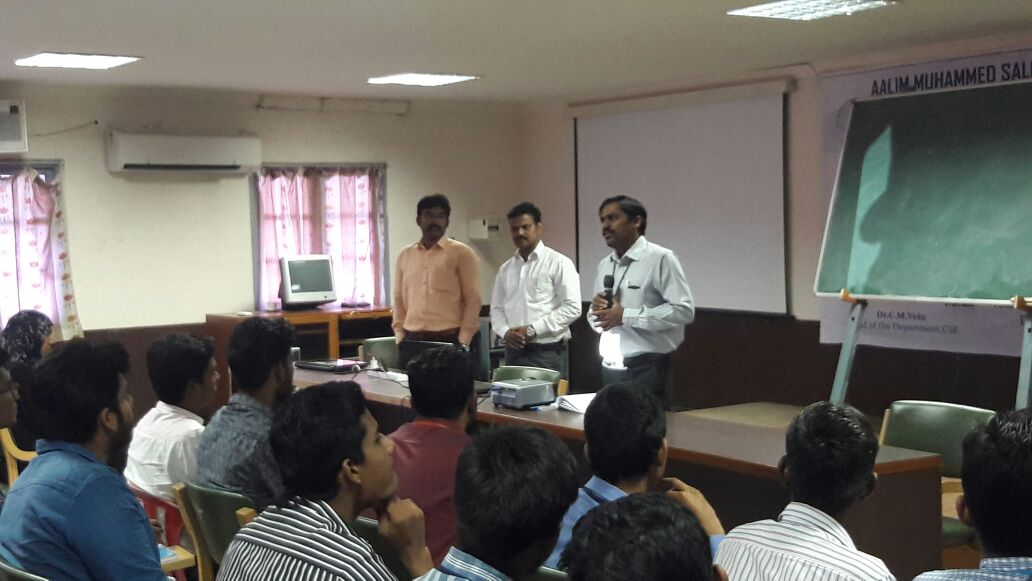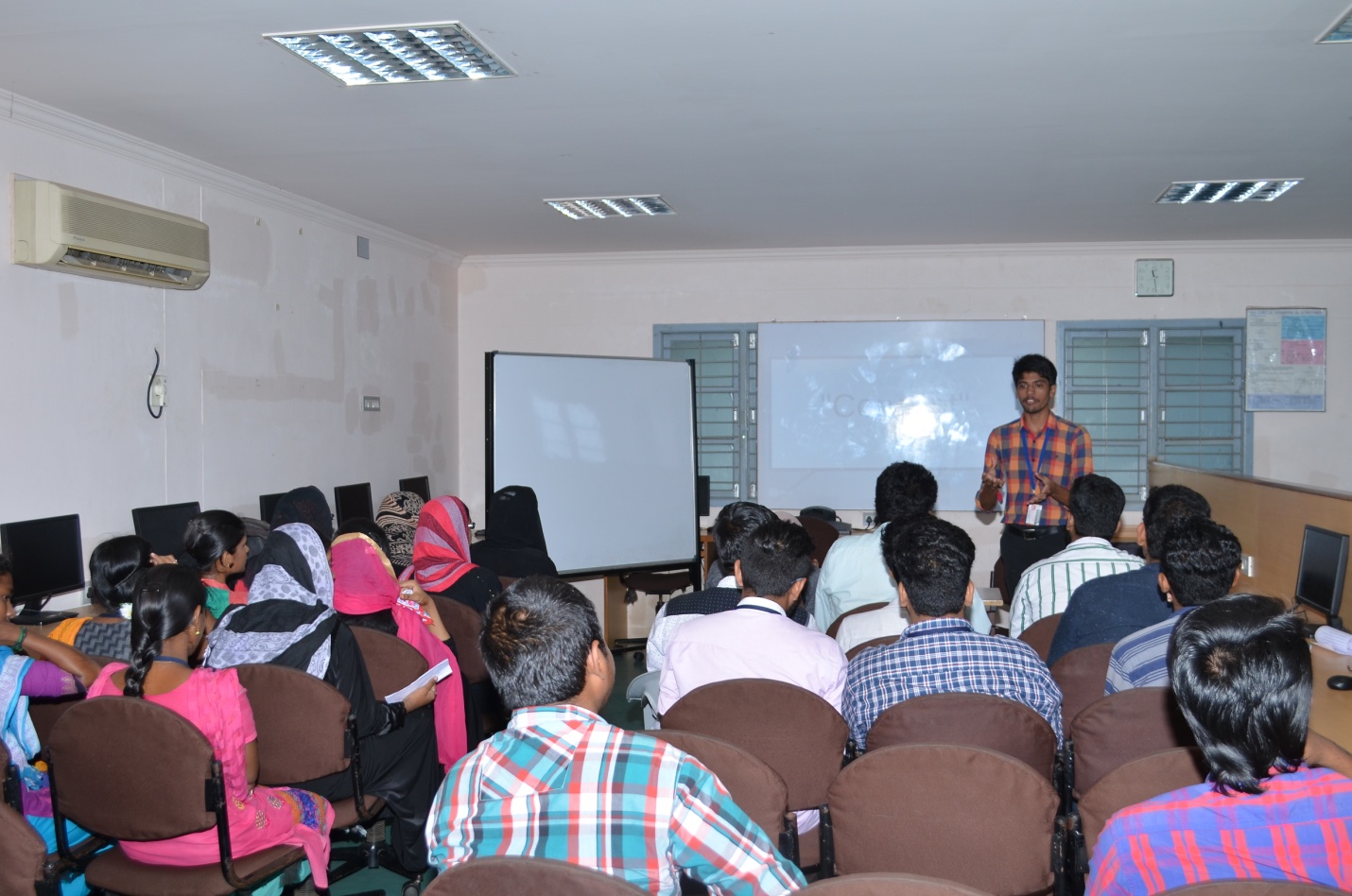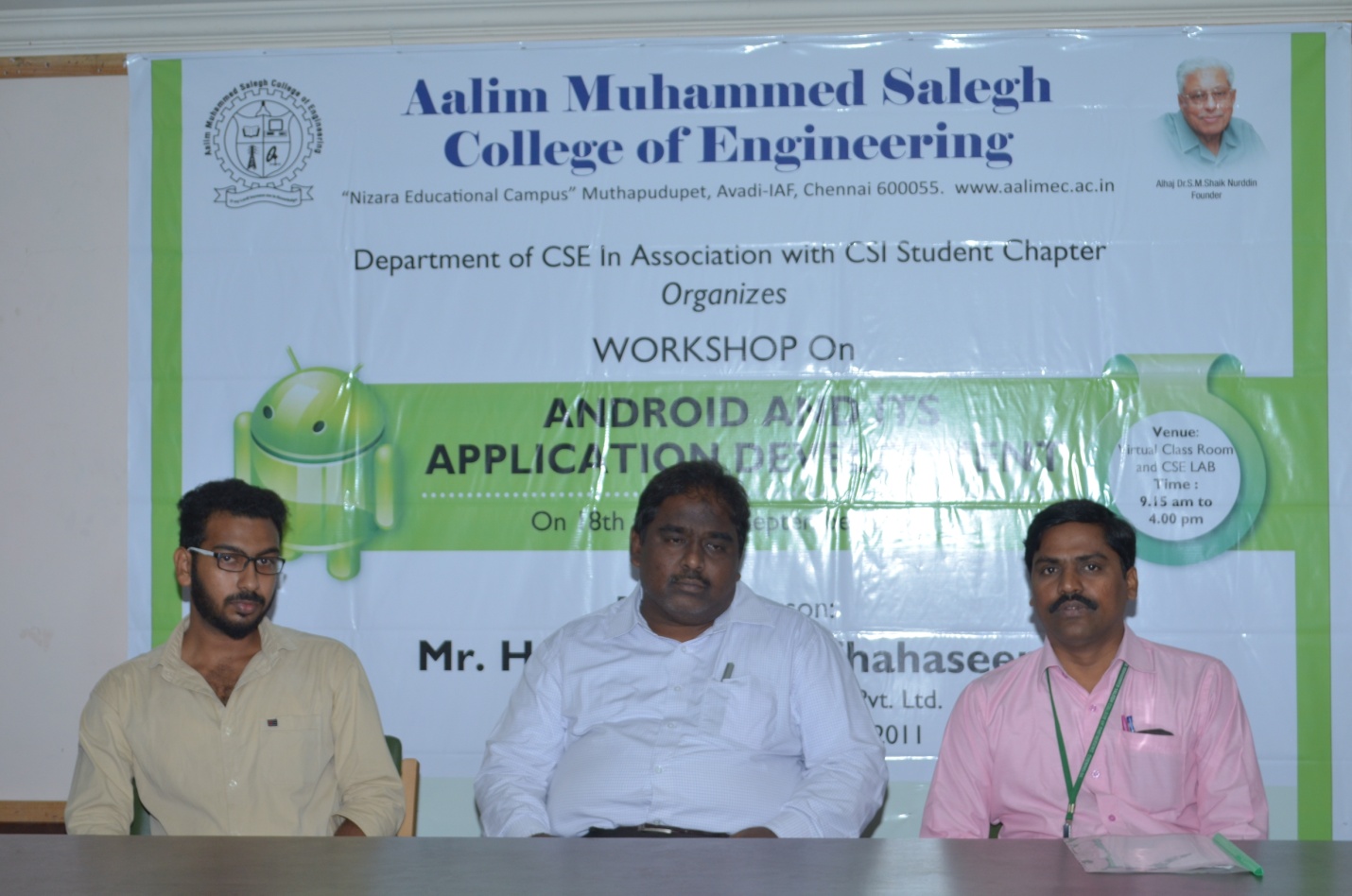COMPUTER SCIENCE AND ENGINEERING
About
Aalim Muhammed Salegh College of Engineering came in to being in the millennium year 2000 constituting Department of Computer Science and Engineering as one of its four departments approved by AICTE, New Delhi and Anna University, Chennai. The department was started with the vision of providing a platform for Global Excellence, teaching and technology development.
The department offers B.E degree course in the Undergraduate category, initially, with batch size of 40 students. In the year 2004, the batch size has been enhanced to 60, there after the batch size has still been enhanced to 90 in the year 2006. From the academic year 2013-14, the batch size further enhanced to 120. In recognition, Anna University has awarded permanent affiliation to the department. The course enables the student to gain the insights of various subjects in theory, with associated laboratory sessions which enables them with practical hands on sessions.
The department is headed by an experienced Professor and supported by 18 dedicated faculty members. All the faculty members are Post Graduate and 4 faculty members are pursuing Ph.D. The department maintains the required number of faculty as per the norms stipulated by the AICTE, 1:20 as a faculty : student ratio. The faculty comprises with Academicians and Industry Professionals who is having different specializations in Computer Science and Engineering to impart their expertise for B.E (Computer Science and Engineering) course. The Department is having Student Chapter for Computer Society of India and it is planning to have IEEE Student Chapter.
Vision of the Department
To produce eminent Software Engineers through teaching state-of-art programming paradigms and Emerging Technologies with Professional Ethics.
Mission of the Department
M1: To up-skill the graduates, Self-blended learning model-based teaching methodologies were adopted.
M2: To develop, High degree of creativity and Problem-solving Skills, Multidisciplinary research activities were focused.
M3: To create knowledge about Intellectual Property Rights, Digital and Cyber Ethics through Continual Learning.
M4: To support, Entrepreneurial aspirants throughout the journey.
PROGRAM EDUCATIONAL OBJECTIVES
Graduates will be able to
-
1. Graduates apply knowledge in varied areas of Higher Education, Research, Design and Development and Industry specific to course work.
-
2. Graduates excel in Programming and Soft Skills along with Project Management Capabilities.
-
3. Graduates to deal with contemporary issues through Continual Learning and enhance Career Advancement.
-
4. Graduates practice Professional Ethics for good working ambience.
PROGRAM SPECIFIC OUTCOMES
Graduates will be able to
-
1. To analyze design and develop computing solutions by applying foundational concepts of Computer Science and Engineering.
-
2. To apply software engineering principles and innovative practices for developing quality software for scientific and business applications problems.
PROGRAM OUTCOMES (POs)
-
1. Engineering knowledge: Apply the knowledge of mathematics, science, engineering fundamentals, and an engineering specialization to the solution of complex engineering problems.
-
2. Problem analysis: Identify, formulate, review research literature, and analyze complex engineering problems reaching substantiated conclusions using first principles of mathematics, natural sciences, and engineering sciences.
-
3. Design/development of solutions: Design solutions for complex engineering problems and design system components or processes that meet the specified needs with appropriate consideration for the public health and safety, and the cultural, societal, and environmental considerations.
-
4. Conduct investigations of complex problems: Use research-based knowledge and research methods including design of experiments, analysis and interpretation of data, and synthesis of the information to provide valid conclusions.
-
5. Modern tool usage: Create, select, and apply appropriate techniques, resources, and modern engineering and IT tools including prediction and modeling to complex engineering activities with an understanding of the limitations.
-
6. The engineer and society: Apply reasoning informed by the contextual knowledge to assess societal, health, safety, legal and cultural issues and the consequent responsibilities relevant to the professional engineering practice.
-
7. Environment and sustainability: Understand the impact of the professional engineering solutions in societal and environmental contexts, and demonstrate the knowledge of, and need for sustainable development.
-
8. Ethics: Apply ethical principles and commit to professional ethics and responsibilities and norms of the engineering practice.
-
9. Individual and team work: Function effectively as an individual, and as a member or leader in diverse teams, and in multidisciplinary settings.
-
10. Communication: Communicate effectively on complex engineering activities with the engineering community and with society at large, such as, being able to comprehend and write effective reports and design documentation, make effective presentations, and give and receive clear instructions.
-
11. Project management and finance: Demonstrate knowledge and understanding of the engineering and management principles and apply these to one’s own work, as a member and leader in a team, to manage projects and in multidisciplinary environments.
-
12. Life-long learning: Recognize the need for, and have the preparation and ability to engage in independent and life-long learning in the broadest context of technological change.

